Review: With FAREWELL TO THE WEST at 54 Below Jonathan Savage Promises a Bright Future For Cabaret
His personal On The Road adventure yielded great things for himself and for his art... his audience, too.
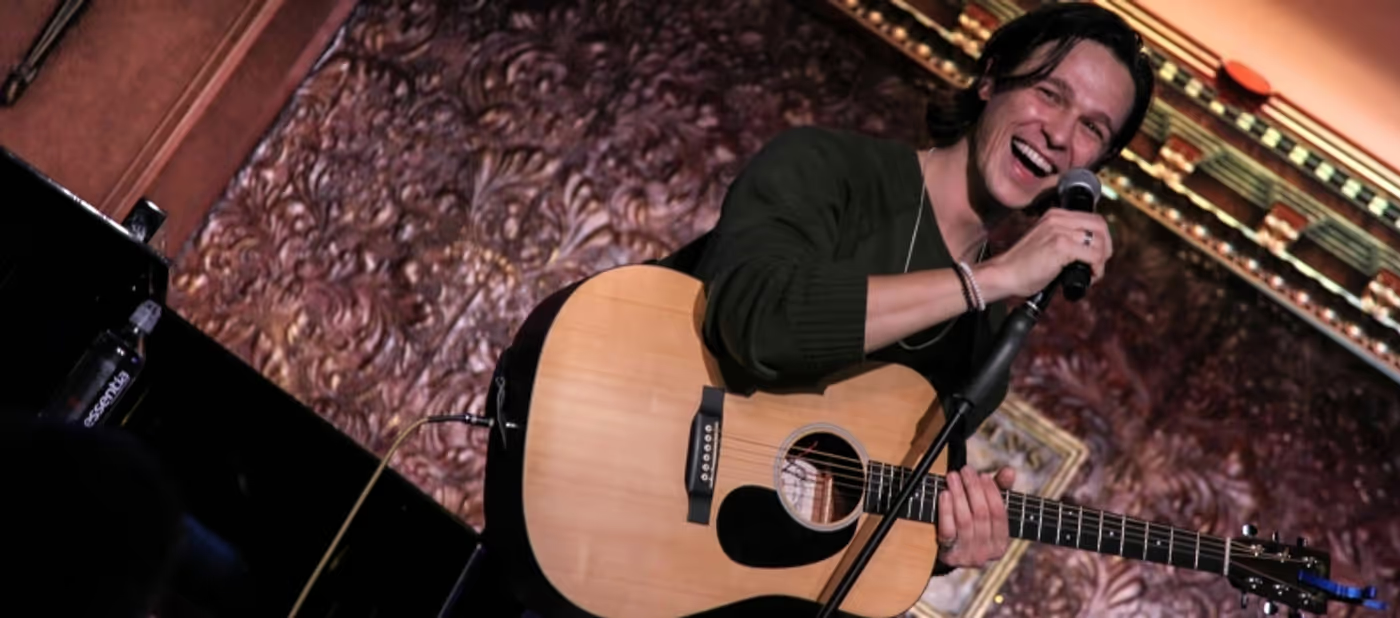
I moved to New York City in 1993 and, almost immediately, had people telling me that "cabaret is dead" or "cabaret is a dying art" or some derivation of the sentiment. I've been hearing that same brand of thought, lo, these many years. I never believed it. There were years when it felt like the industry was dying, but that's another story: the point is that cabaret didn't die, and it's not going to. It's not going to because, every year, young people enter the industry of artists who prefer to tell their stories to small rooms of people into whose eyes they can look. Every month there is an influx of youthful talent and energy into the rooms where, once, revered artists like Peggy Lee, Bobby Short, and Julie Wilson sang songs from the Great American Songbook. The thing is that Misses Wilson and Lee and Mister Short were, once, young upstarts, too, changing the industry of small venue entertainment, and in order for cabaret to not only survive but thrive the youth of the world of live entertainment must be welcomed to the table, they must be nurtured, mentored, and provided with every resource that the industry has. Only then can the future of cabaret be insured.
Last night at 54 Below Jonathan Savage gave this writer hope for the future: the future of cabaret, the future of the community of musical storytellers, the future of the world.
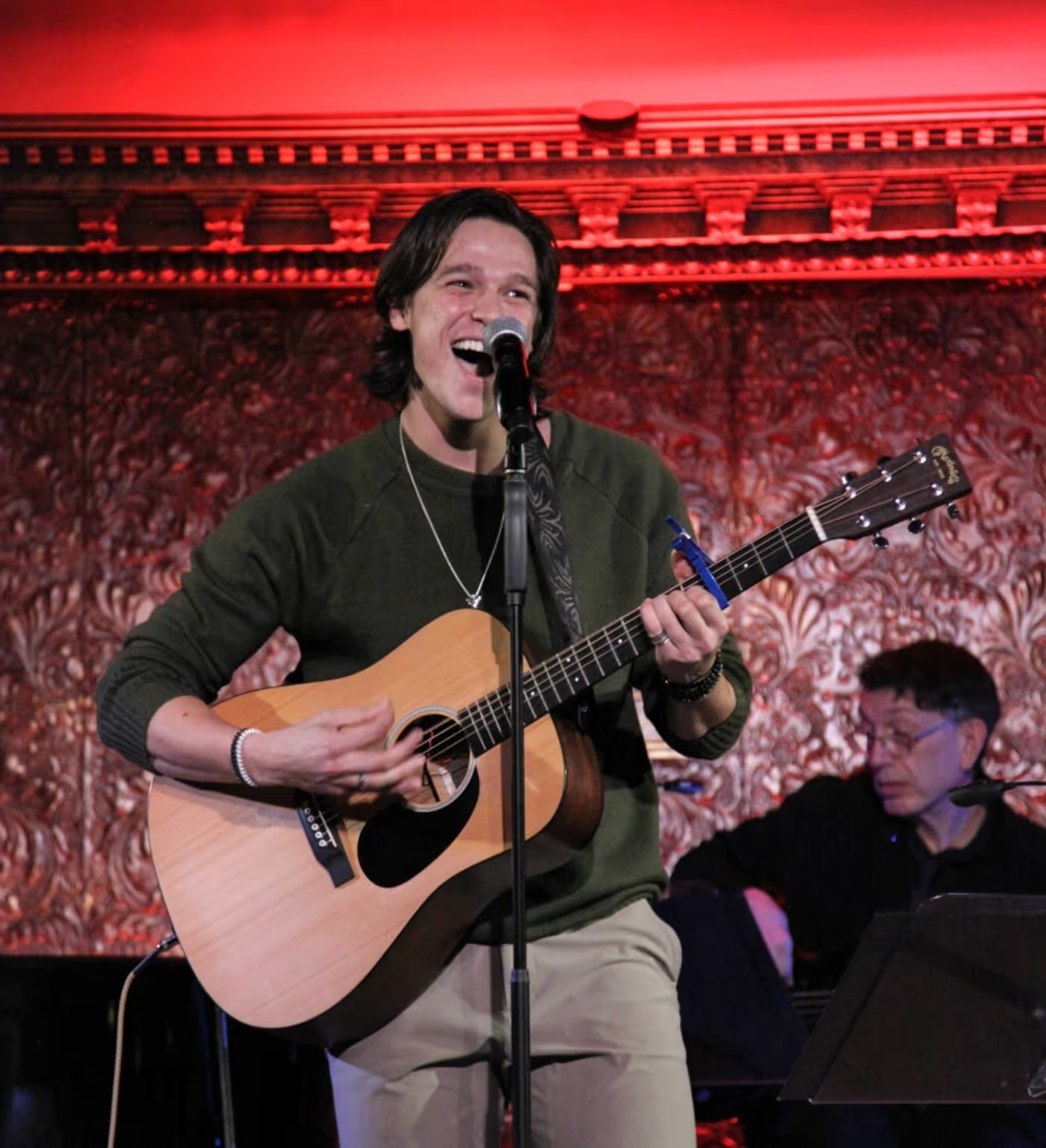 With his debut solo club act FAREWELL TO THE WEST Jonathan Savage has created an evening of musical entertainment that is absolutely beyond reproach. No reviewer or critic could possibly find a flaw in the sixty-minute program, indeed, choosing a simple constructive suggestion to offer Mr. Savage on his piece of musical storytelling would be a needle in a haystack moment. The journey upon which he took his audience last night is a fully realized cabaret show filled with such florid language of a descriptive yet poetic nature as to render the human mind a natural View-Master. Whether singing one of ten incredible self-composed songs or regaling the crowd with an immaculately constructed ongoing monolog, Mr. Savage proved to be a first-rate storyteller, able to paint pictures with no more than the words, the music, and physical antics ranging from the heavy raising of a quiet eyebrow to the manic stampeding of every inch of the stage. No superfluous moment was in existence, from the time his foot hit the wood to the second he stepped off of it.
With his debut solo club act FAREWELL TO THE WEST Jonathan Savage has created an evening of musical entertainment that is absolutely beyond reproach. No reviewer or critic could possibly find a flaw in the sixty-minute program, indeed, choosing a simple constructive suggestion to offer Mr. Savage on his piece of musical storytelling would be a needle in a haystack moment. The journey upon which he took his audience last night is a fully realized cabaret show filled with such florid language of a descriptive yet poetic nature as to render the human mind a natural View-Master. Whether singing one of ten incredible self-composed songs or regaling the crowd with an immaculately constructed ongoing monolog, Mr. Savage proved to be a first-rate storyteller, able to paint pictures with no more than the words, the music, and physical antics ranging from the heavy raising of a quiet eyebrow to the manic stampeding of every inch of the stage. No superfluous moment was in existence, from the time his foot hit the wood to the second he stepped off of it.
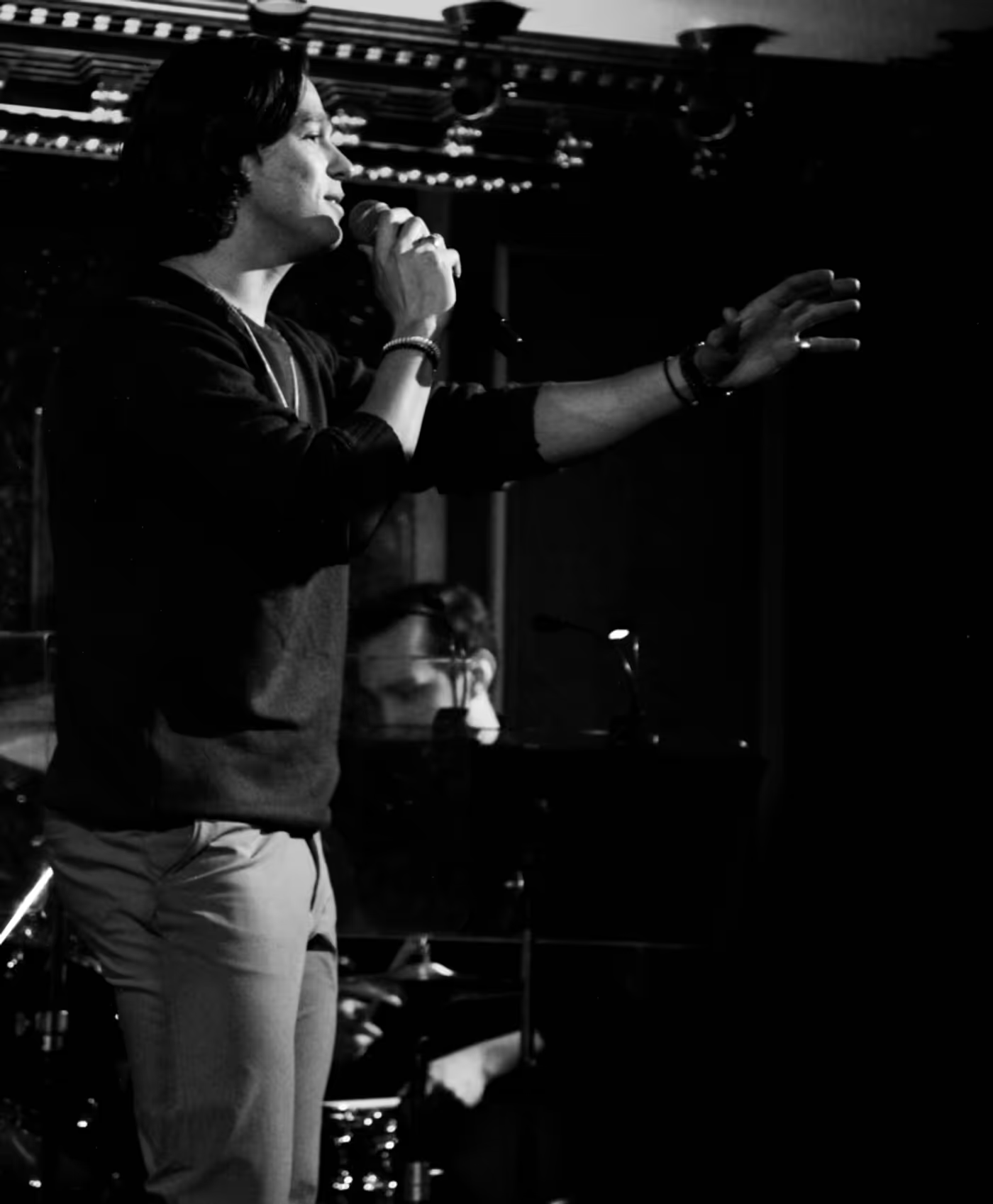 Farewell To The West is the true story of Jonathan's pandemic experience, a Jack Kerouac kind of adventure that took him from New York City out into the West. There were road trips with friends, solo adventures, a home on wheels, and an extended stay in a National Park where Savage didn't only expand his personal horizons, he informed the lives of others. With each new adventure, with every fresh experience, Savage sat down by a river and wrote a song. And what a collection of compositions. There are artists of the singer-songwriter persuasion who have, with success and sometimes with legend, taken a life experience and turned it into a song cycle, an album, a concert. In the great tradition of men like Cat Stevens and Don McLean, of Paul Simon and John Prine, Jonathan Savage proves that he is a songwriter of substance, mastering the art of composition which he, last night, used to showcase spectacular vocal skills that issued forth from the cavern of his throat like each of the breathtaking scenic views in his story. In his opening number "The Call" Savage achieved a vocalise call reminiscent of brisk wind winding around mountain treetops, and during the gorgeous "Mountain Men" his voice echoed through the room with such rich, resonant low tones as to represent a river flowing through the deepest point of a ravine. Not since John Denver sang of his love of nature has a voice, so singularly, mated with a musical composition in a perfect conjuring of visual majesty, and that's before Savage layers in all of the emotional content that he manages to bring to every word, to each phrase, to all of his poetic storytelling about his life, his longing, his laughter, and his love - all of which received pretty equal play during his one-man revelation. It is a brilliant piece of cabaret theater, one that almost makes you wish that it were long enough to turn into a one-man play that could sit down in a black box for a theatrical run - except that it shouldn't. Farewell to the West is a club act. It is perfect just as it is. It should be seen in intimate rooms, cabaret clubs, coffee houses, living rooms, where Jonathan can look at the people, the way he would if he were doing Storytime with a group of toddlers and, like the toddlers, the members of the audience will go with him, wide-eyed, starry-eyed, misty-eyed, but always sitting forward in their seats, a smile of varying degrees on their lips, and one hundred percent investment in the story. That is the level of quality to be found here, and that is why cabaret will not die: because of up-and-coming artists like Jonathan Savage who won't just keep the art form alive, they will reinvent and reinvigorate it, bringing it into the present, and then the future.
Farewell To The West is the true story of Jonathan's pandemic experience, a Jack Kerouac kind of adventure that took him from New York City out into the West. There were road trips with friends, solo adventures, a home on wheels, and an extended stay in a National Park where Savage didn't only expand his personal horizons, he informed the lives of others. With each new adventure, with every fresh experience, Savage sat down by a river and wrote a song. And what a collection of compositions. There are artists of the singer-songwriter persuasion who have, with success and sometimes with legend, taken a life experience and turned it into a song cycle, an album, a concert. In the great tradition of men like Cat Stevens and Don McLean, of Paul Simon and John Prine, Jonathan Savage proves that he is a songwriter of substance, mastering the art of composition which he, last night, used to showcase spectacular vocal skills that issued forth from the cavern of his throat like each of the breathtaking scenic views in his story. In his opening number "The Call" Savage achieved a vocalise call reminiscent of brisk wind winding around mountain treetops, and during the gorgeous "Mountain Men" his voice echoed through the room with such rich, resonant low tones as to represent a river flowing through the deepest point of a ravine. Not since John Denver sang of his love of nature has a voice, so singularly, mated with a musical composition in a perfect conjuring of visual majesty, and that's before Savage layers in all of the emotional content that he manages to bring to every word, to each phrase, to all of his poetic storytelling about his life, his longing, his laughter, and his love - all of which received pretty equal play during his one-man revelation. It is a brilliant piece of cabaret theater, one that almost makes you wish that it were long enough to turn into a one-man play that could sit down in a black box for a theatrical run - except that it shouldn't. Farewell to the West is a club act. It is perfect just as it is. It should be seen in intimate rooms, cabaret clubs, coffee houses, living rooms, where Jonathan can look at the people, the way he would if he were doing Storytime with a group of toddlers and, like the toddlers, the members of the audience will go with him, wide-eyed, starry-eyed, misty-eyed, but always sitting forward in their seats, a smile of varying degrees on their lips, and one hundred percent investment in the story. That is the level of quality to be found here, and that is why cabaret will not die: because of up-and-coming artists like Jonathan Savage who won't just keep the art form alive, they will reinvent and reinvigorate it, bringing it into the present, and then the future.
The exceptionally great Farewell to the West band is Matt Sweeney, Bill Goffi, and Musical Director Steve Schalchlin, and Jonathan's director for the program is Joseph Frederick Allen.
Farewell to the West is a Ben Sears production.
Jonathan Savage FAREWELL TO THE WEST played its one-off performance last night. When future dates are announced, Broadway World Cabaret will bring you the news. In the meantime, find other great shows to see at the 54 Below website HERE.
Jonathan Savage has a website HERE and an Instagram page HERE.
Jonathan Savage gets a five out of five microphones rating for performing his entire show without the use of a lyric sheet, tablet, or music stand.
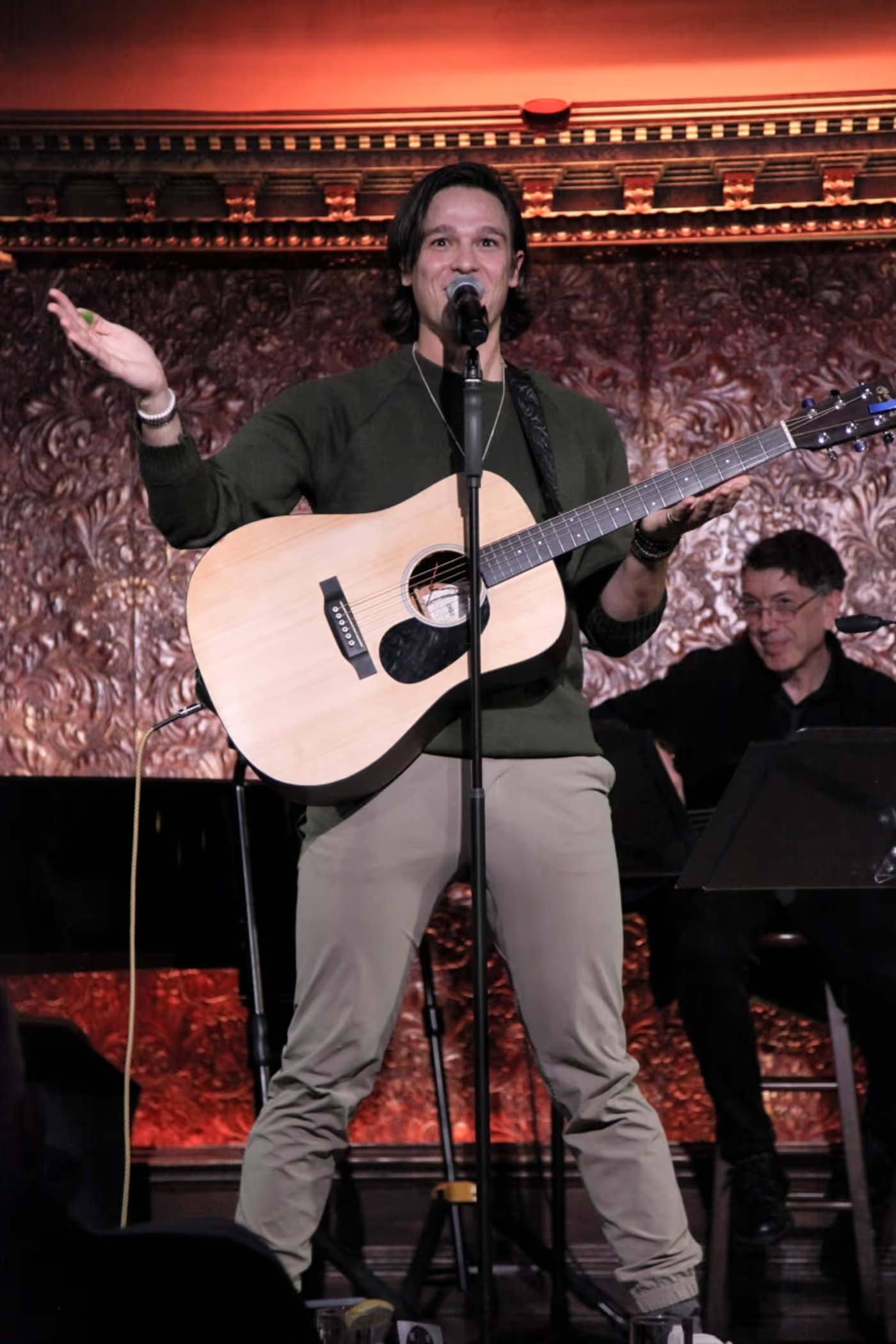
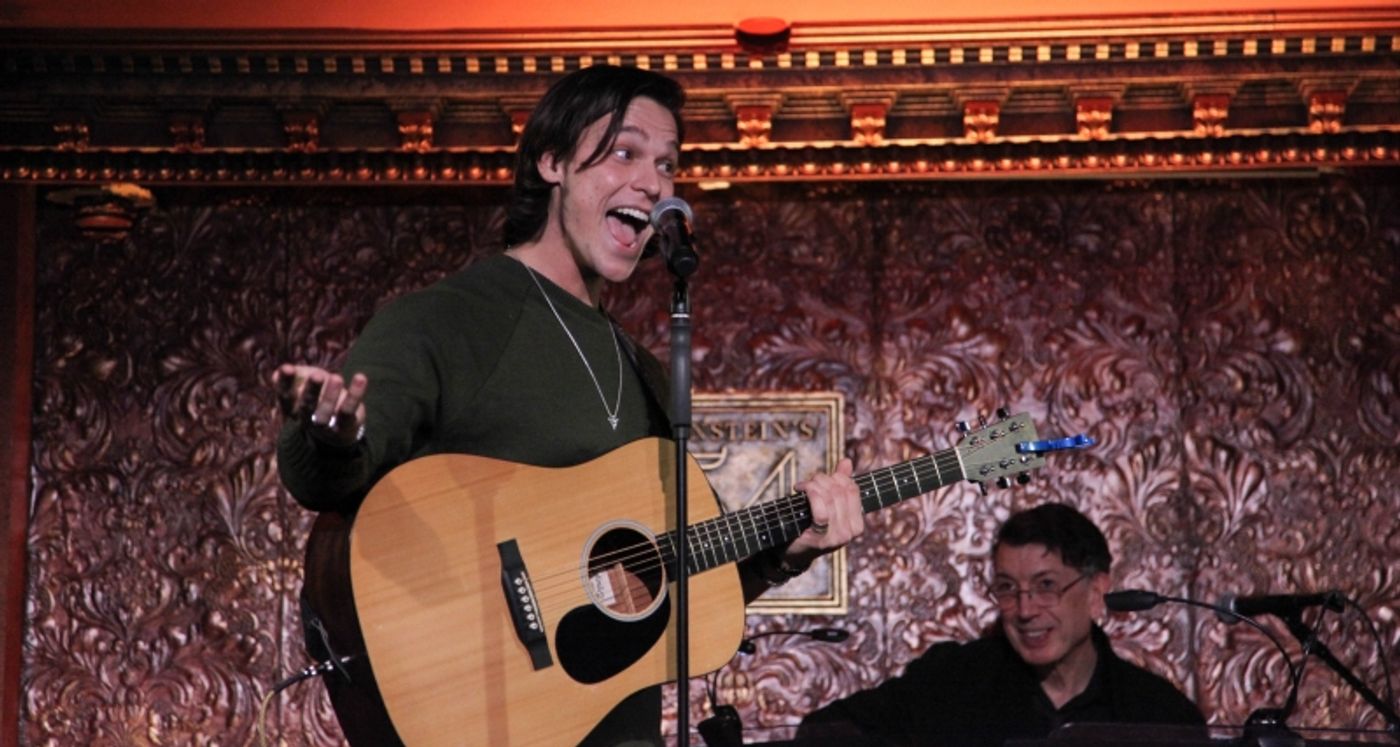
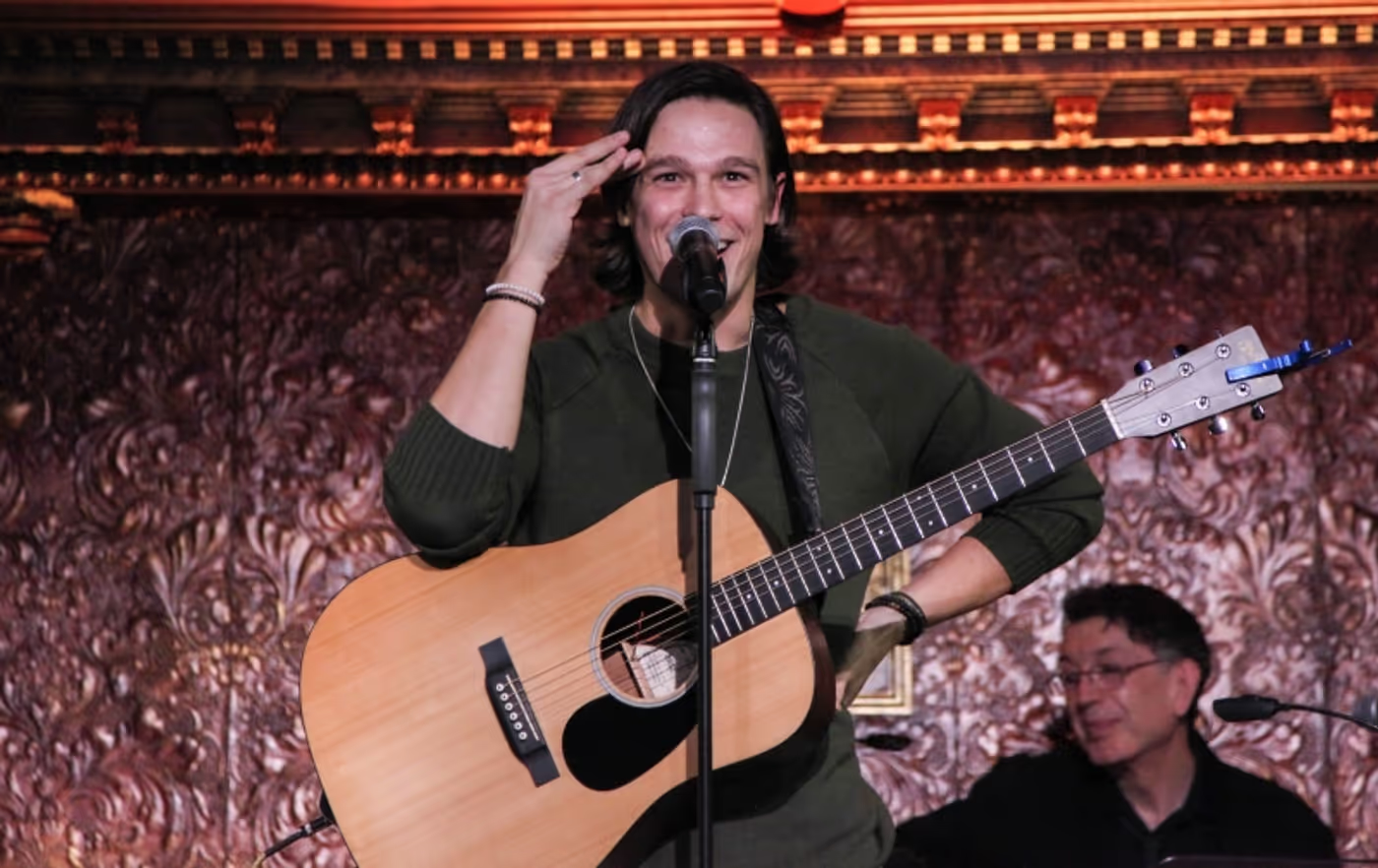
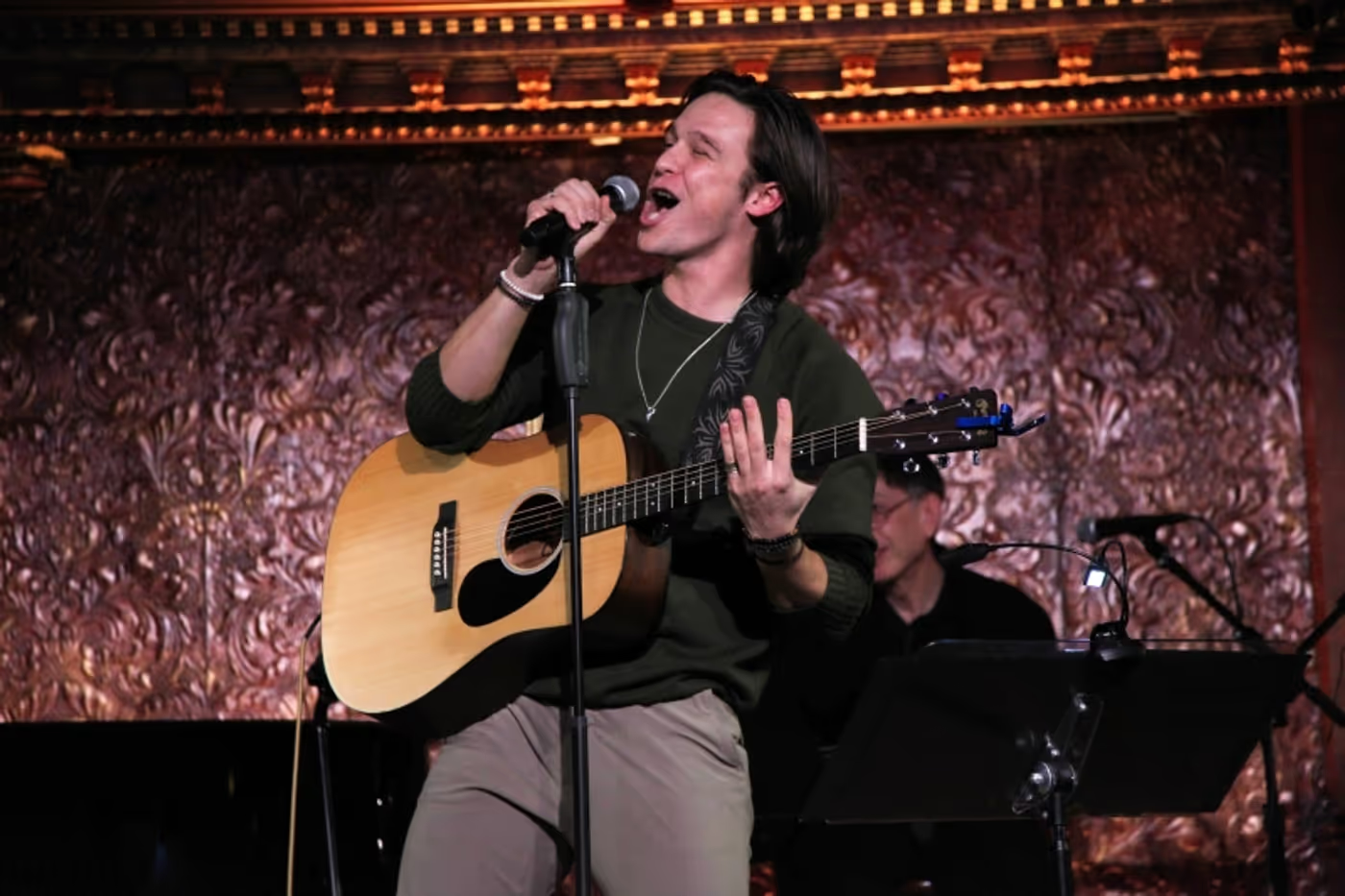
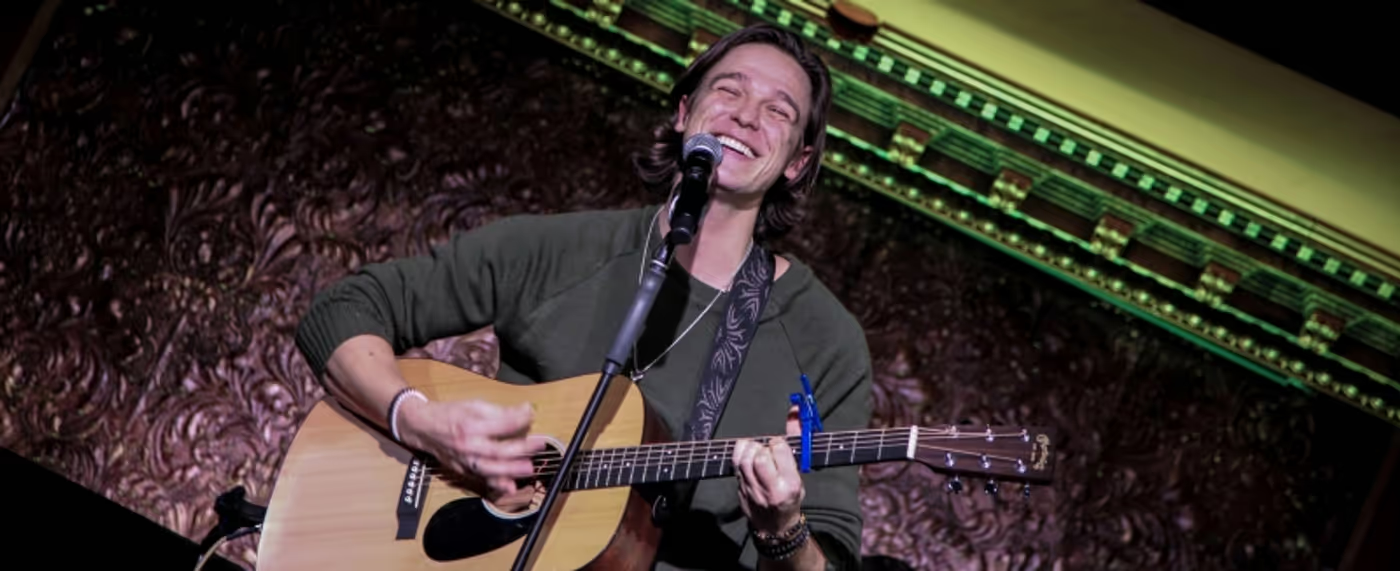
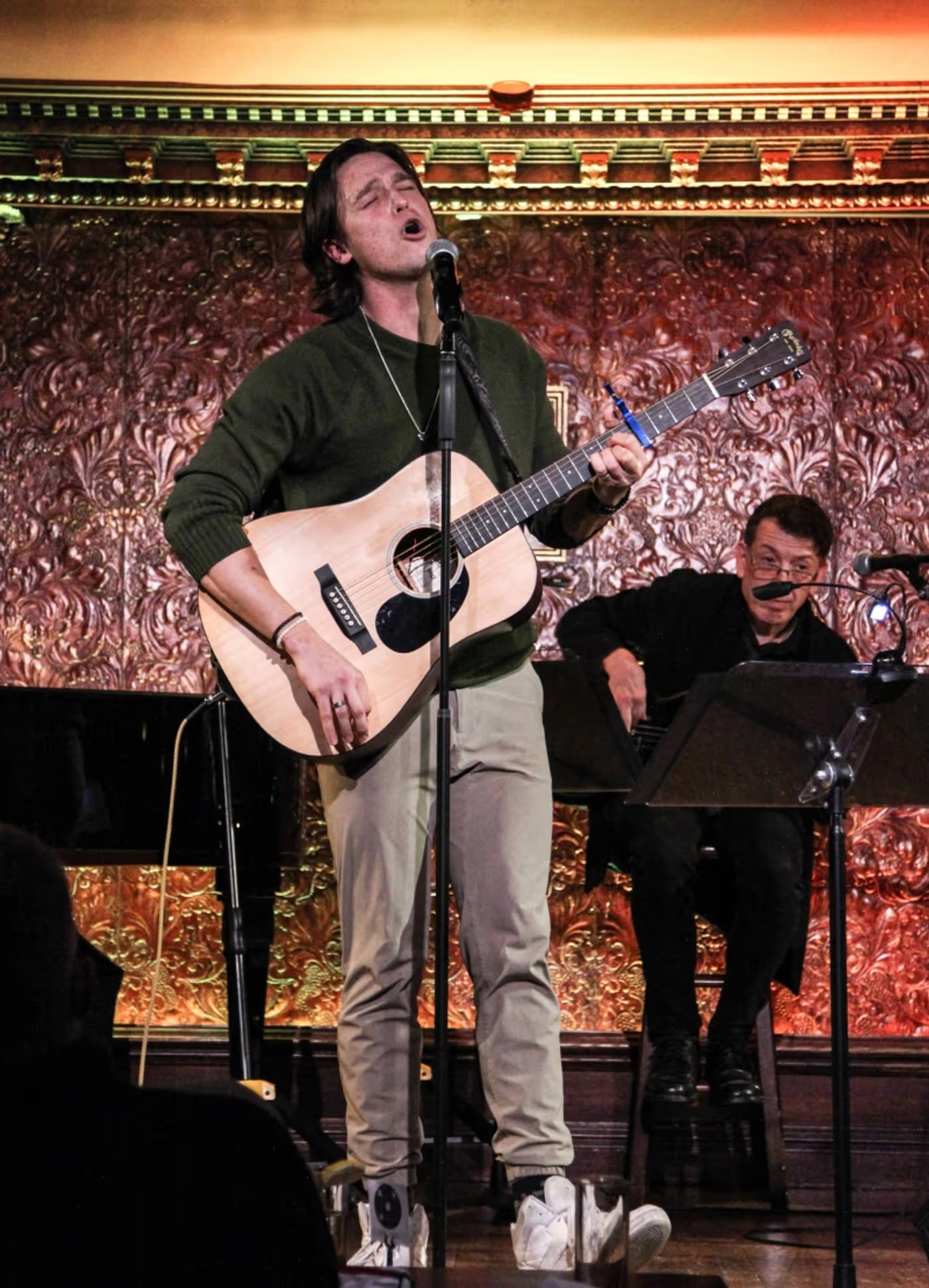
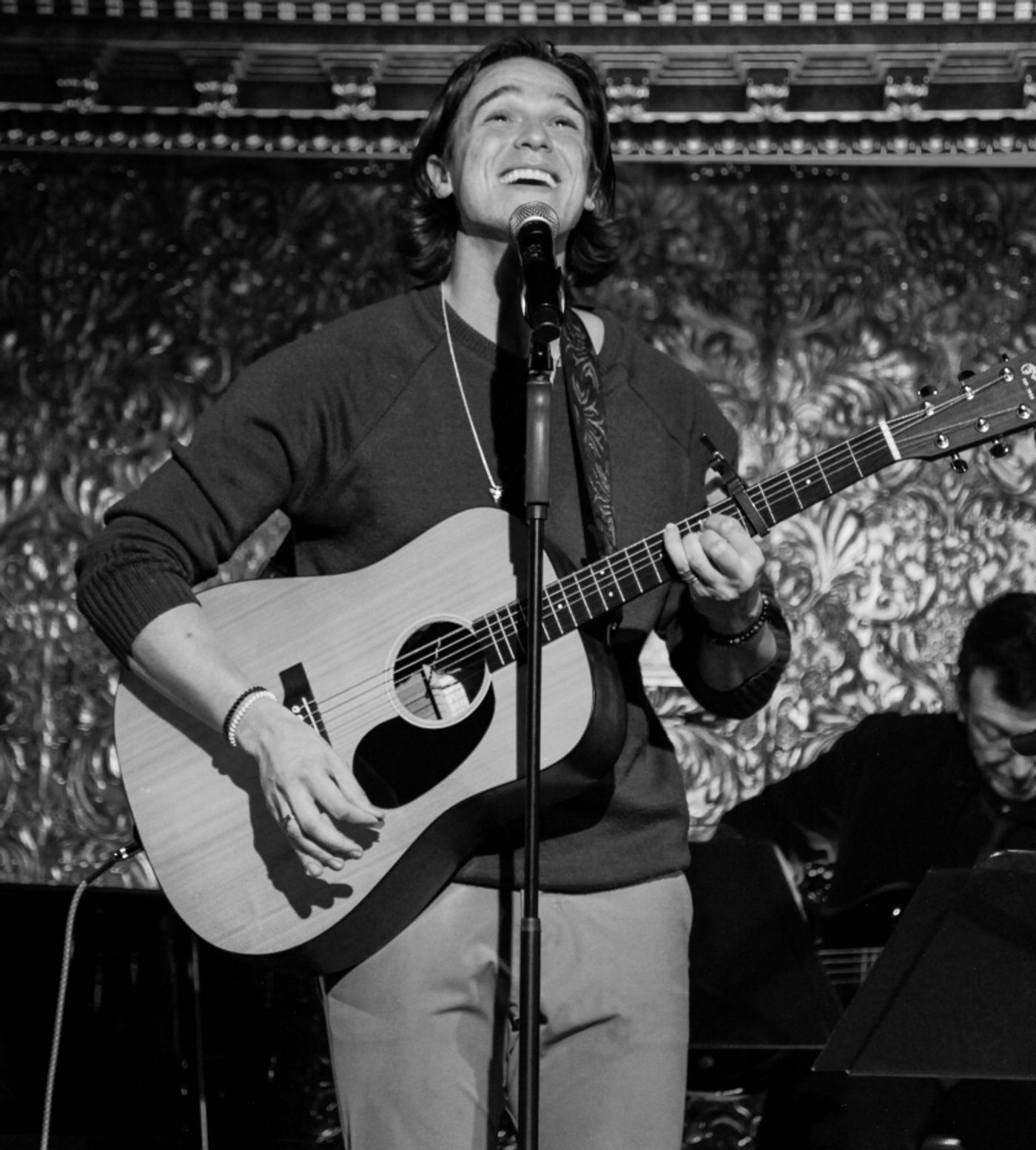
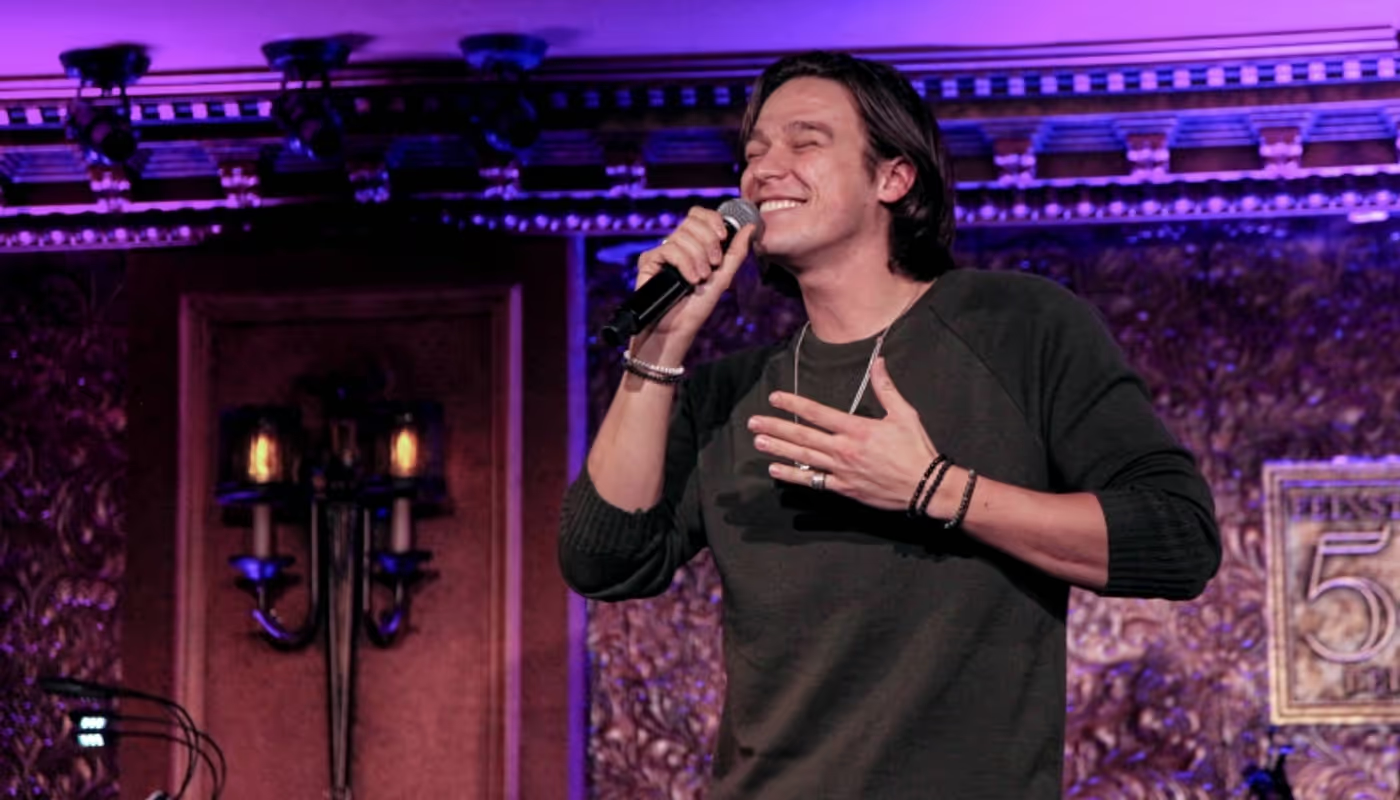
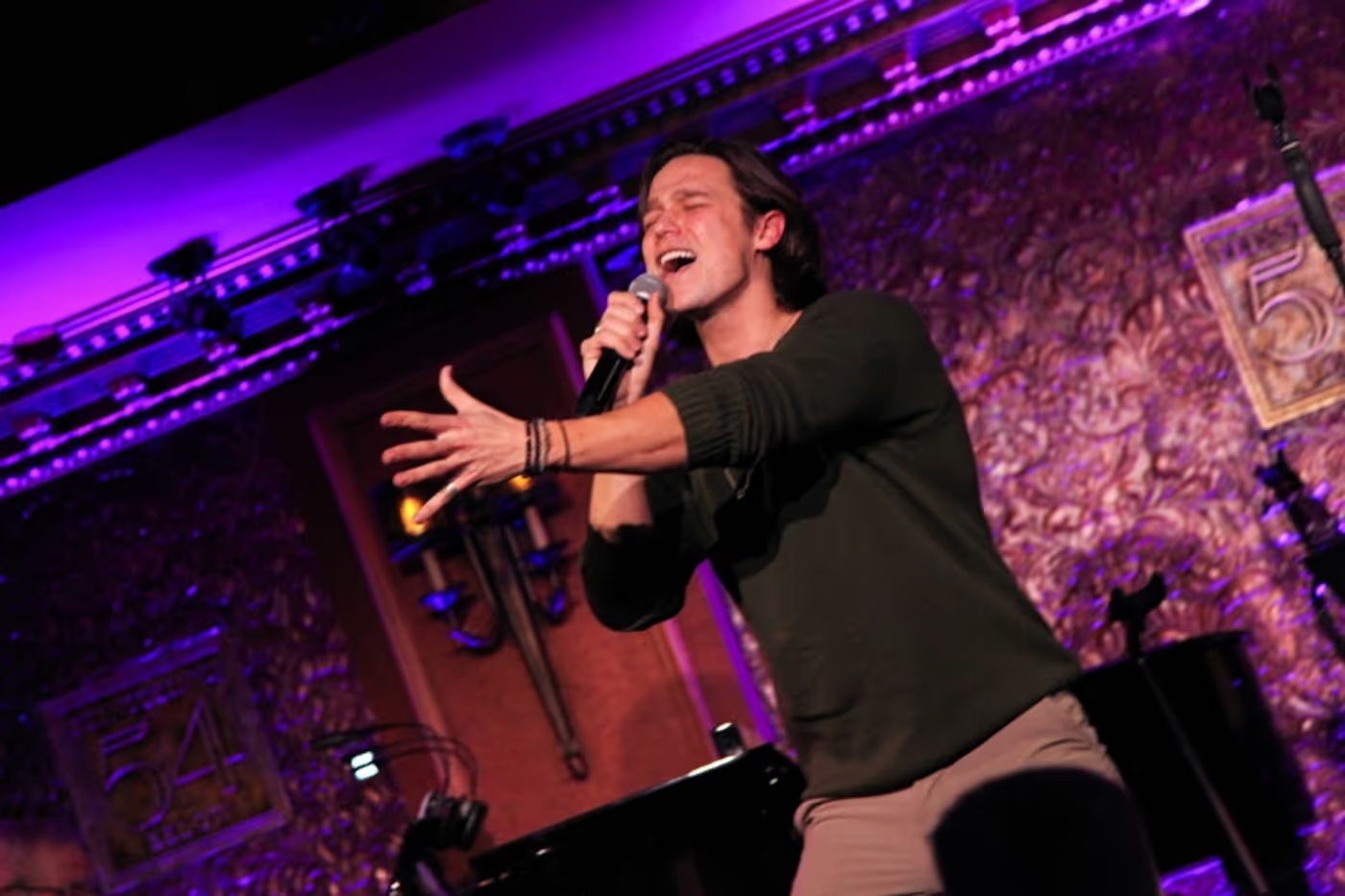
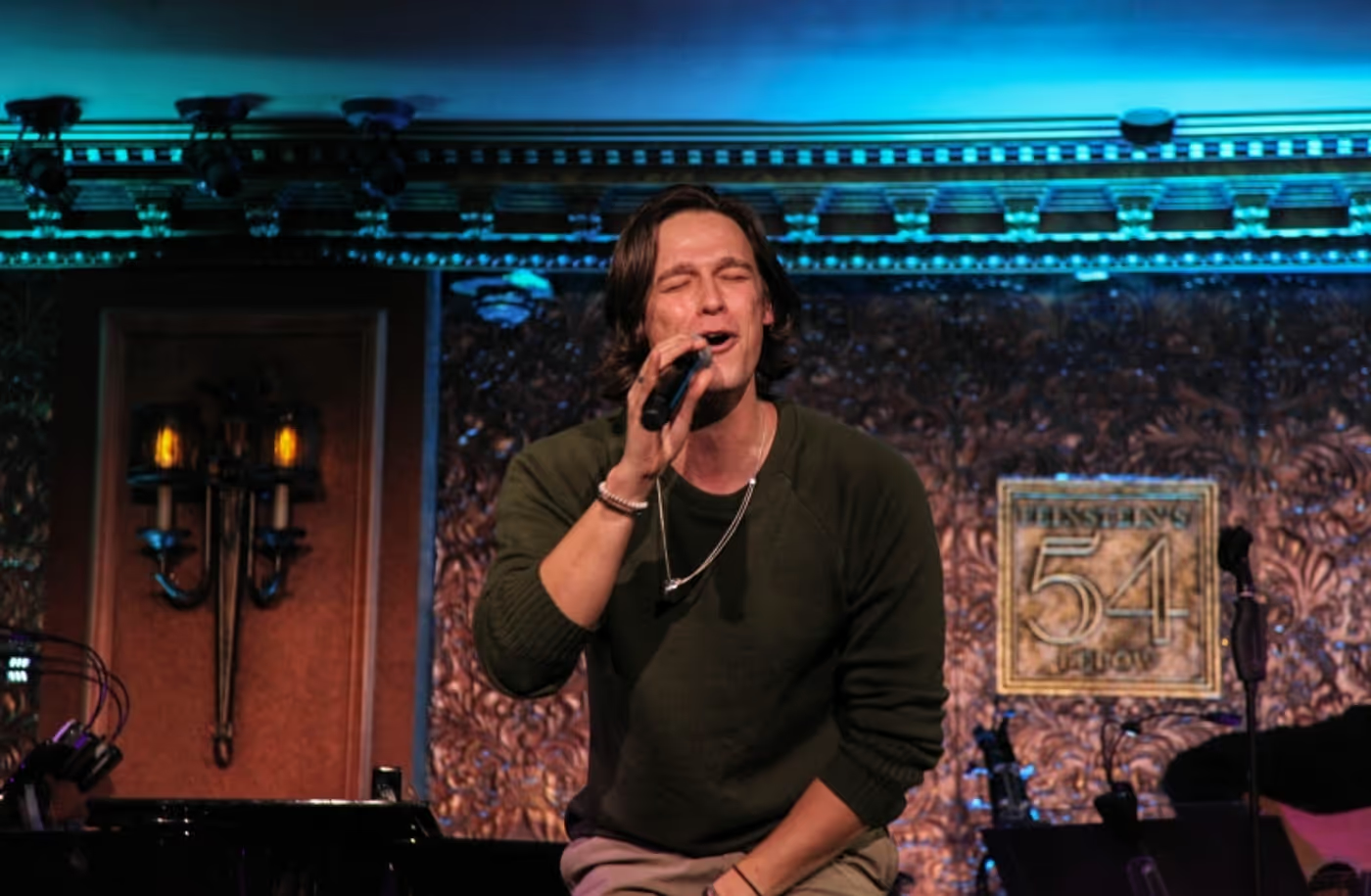
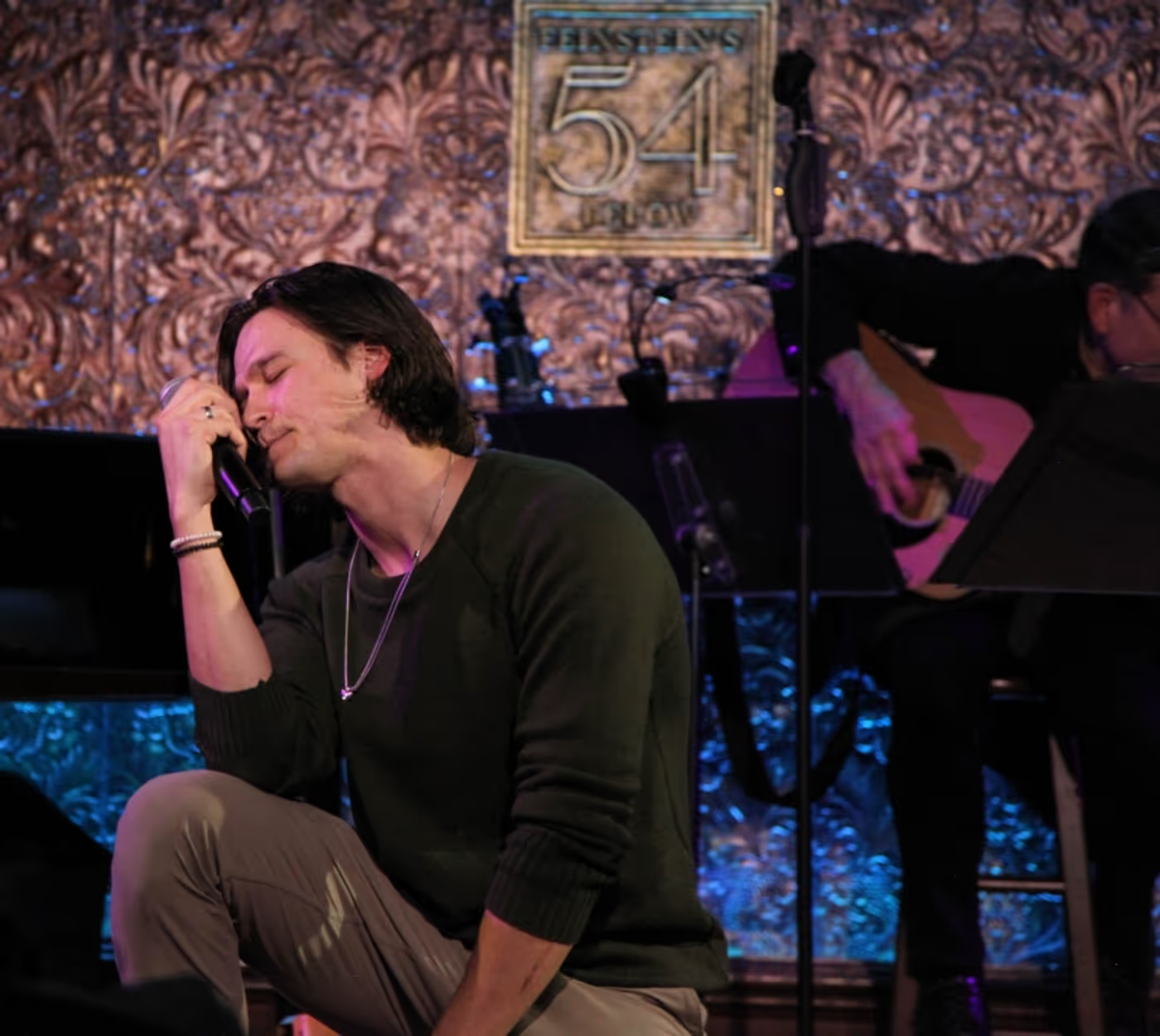
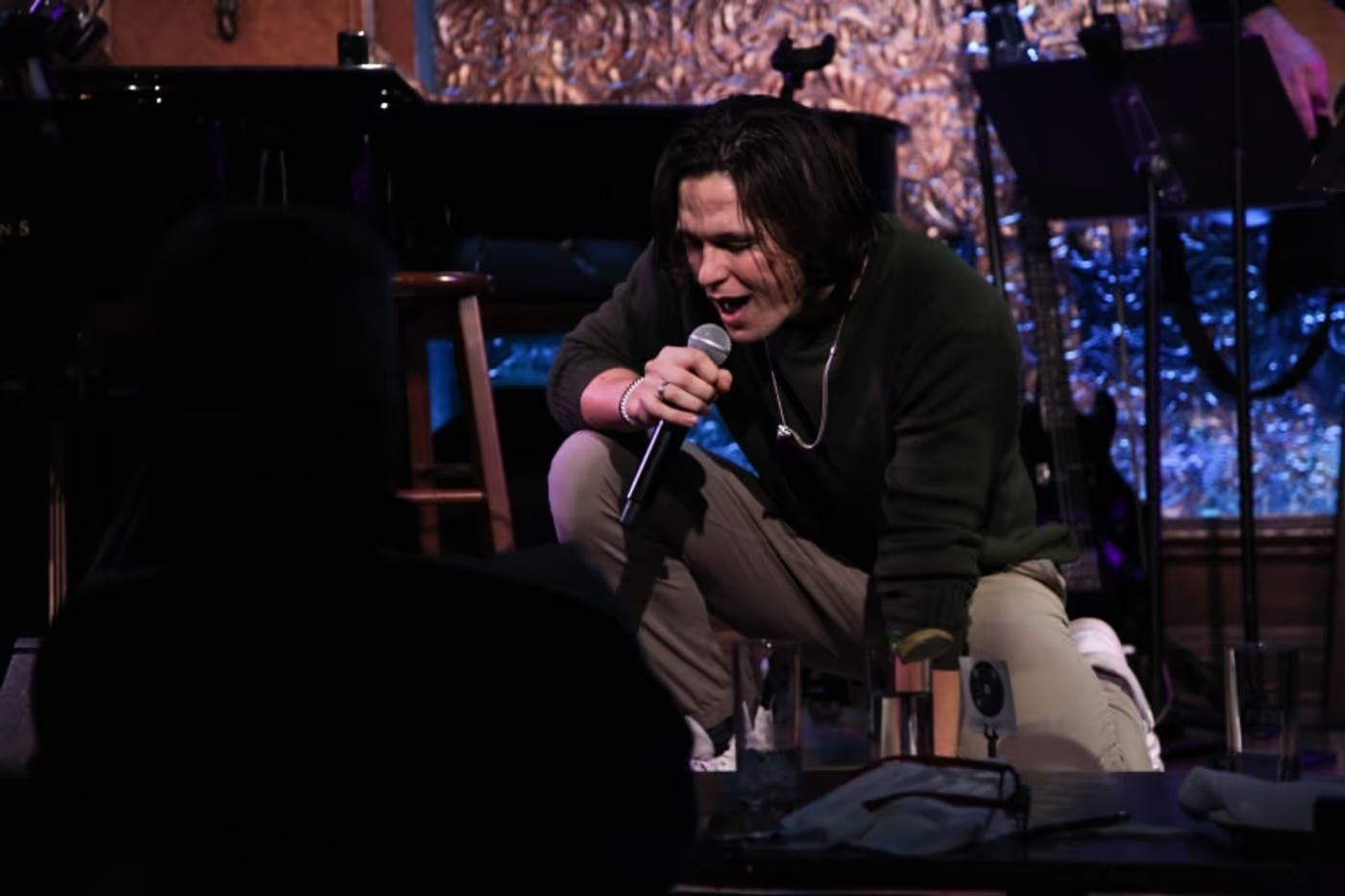
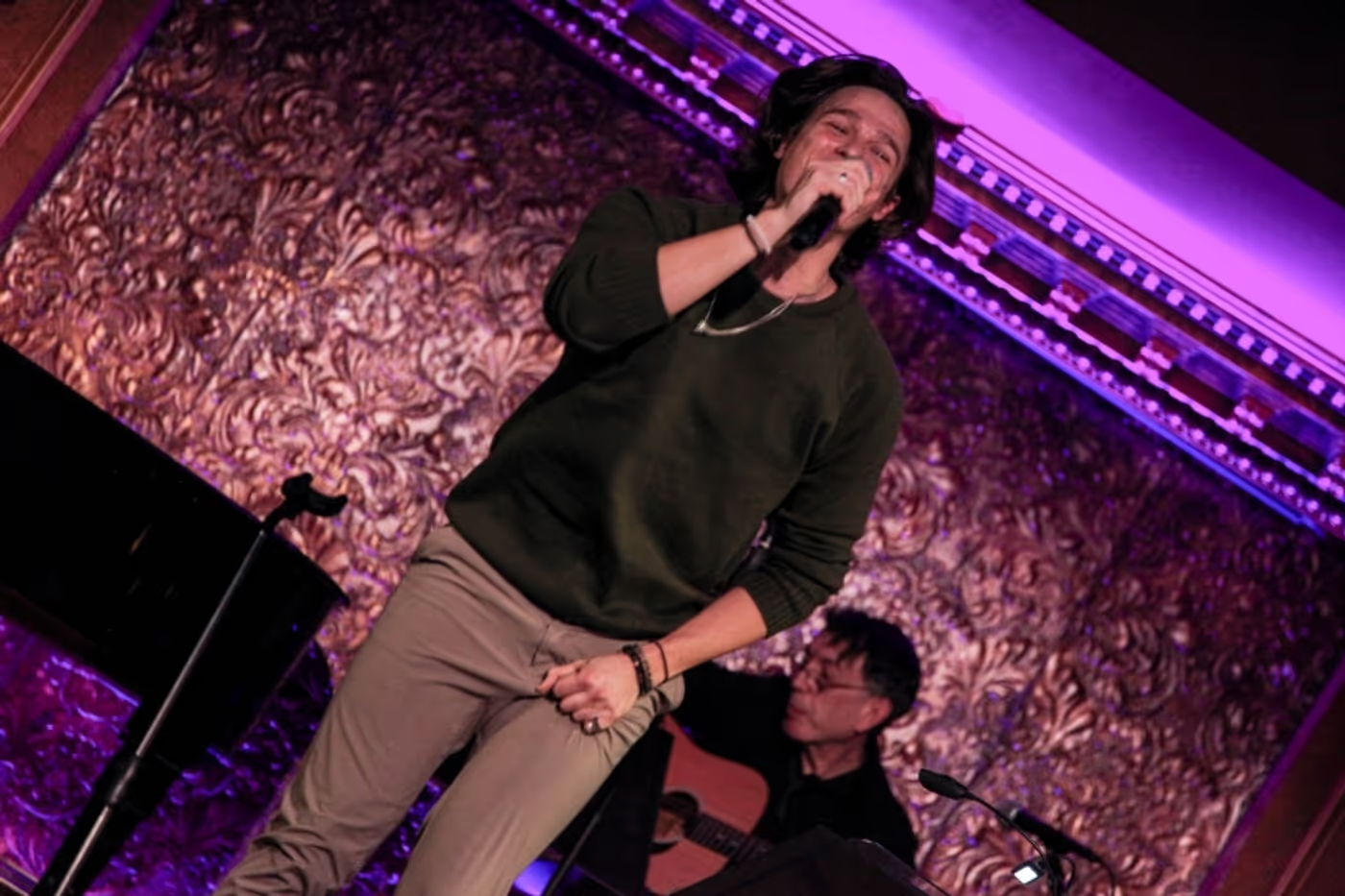
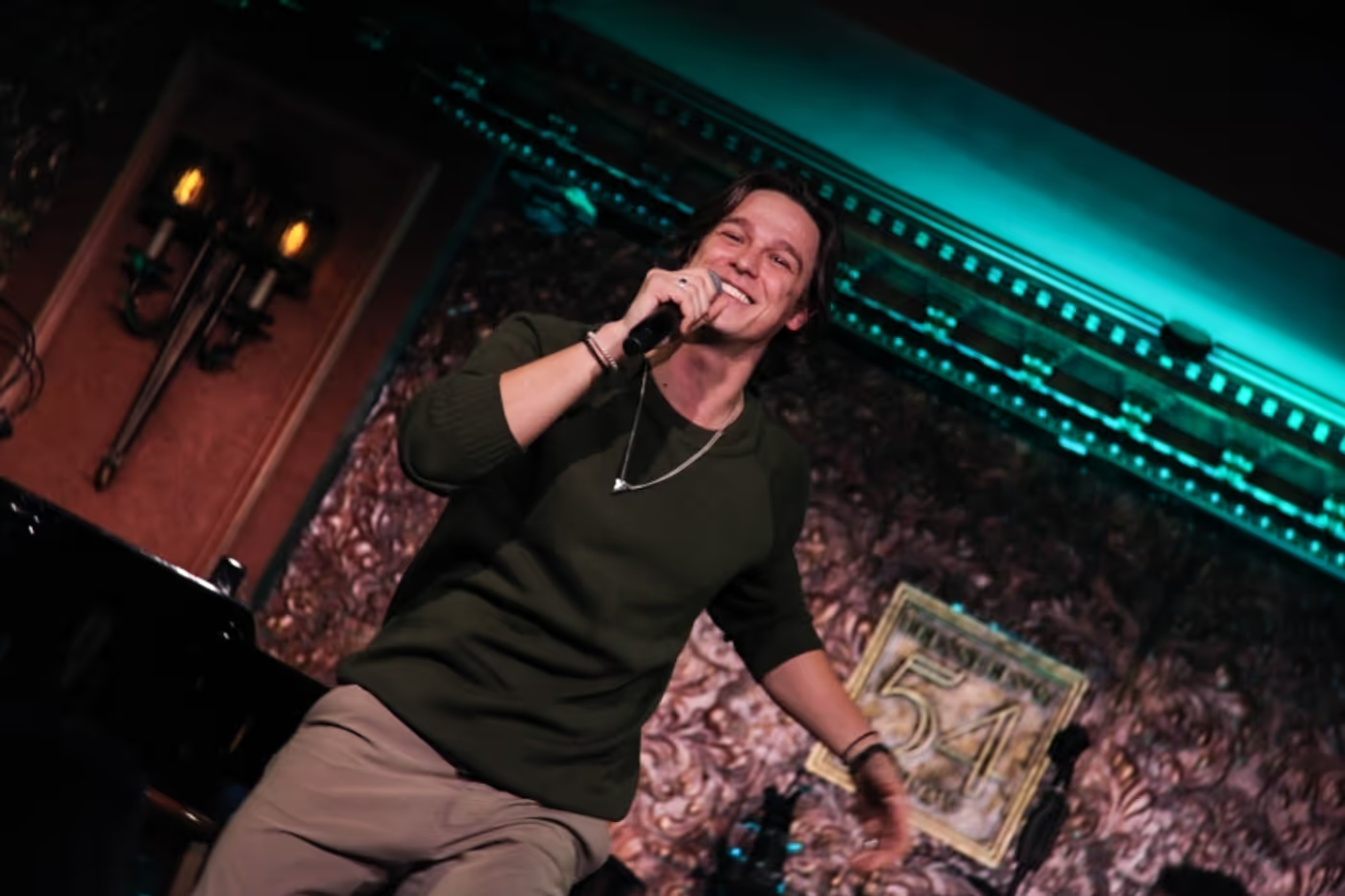
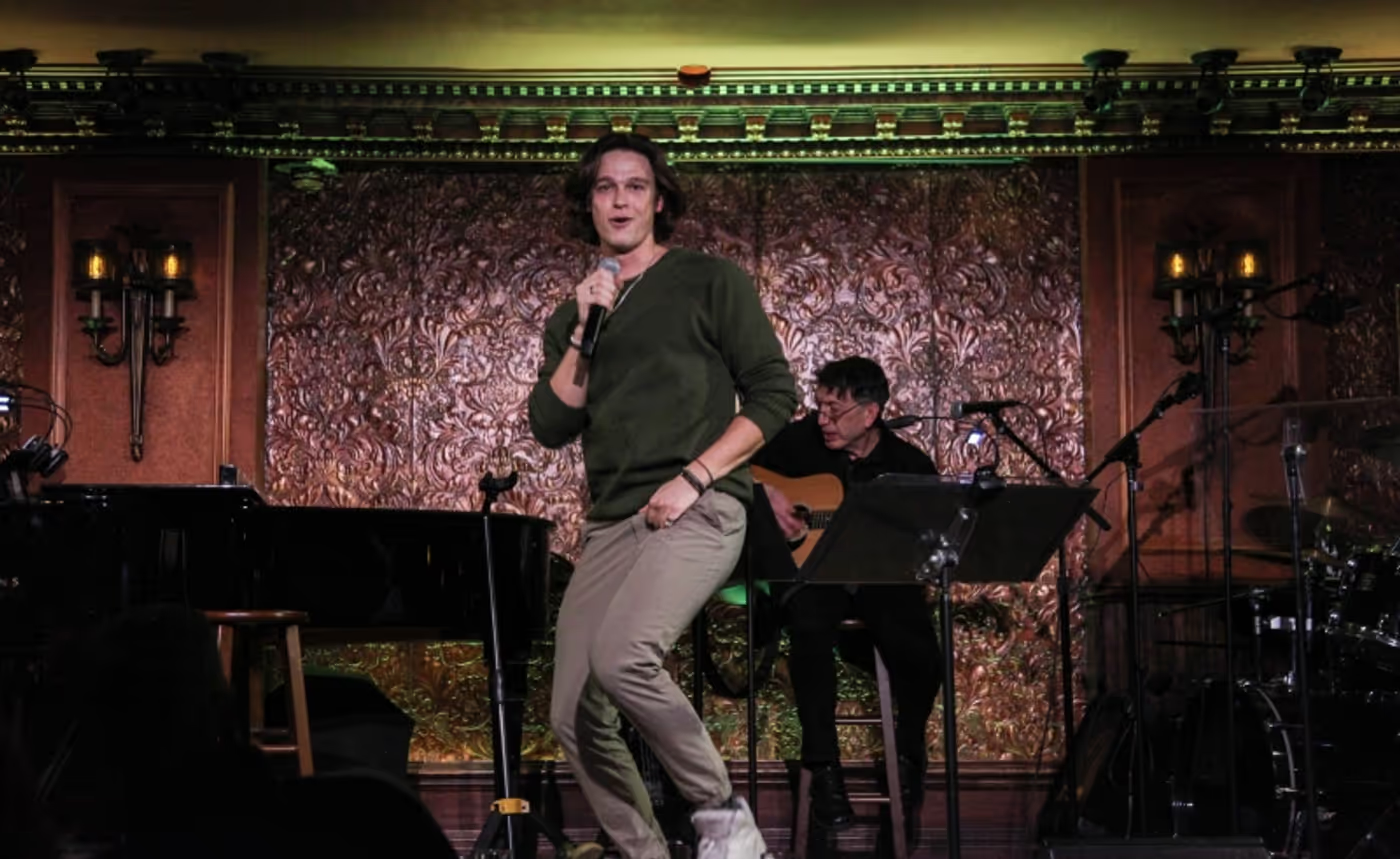
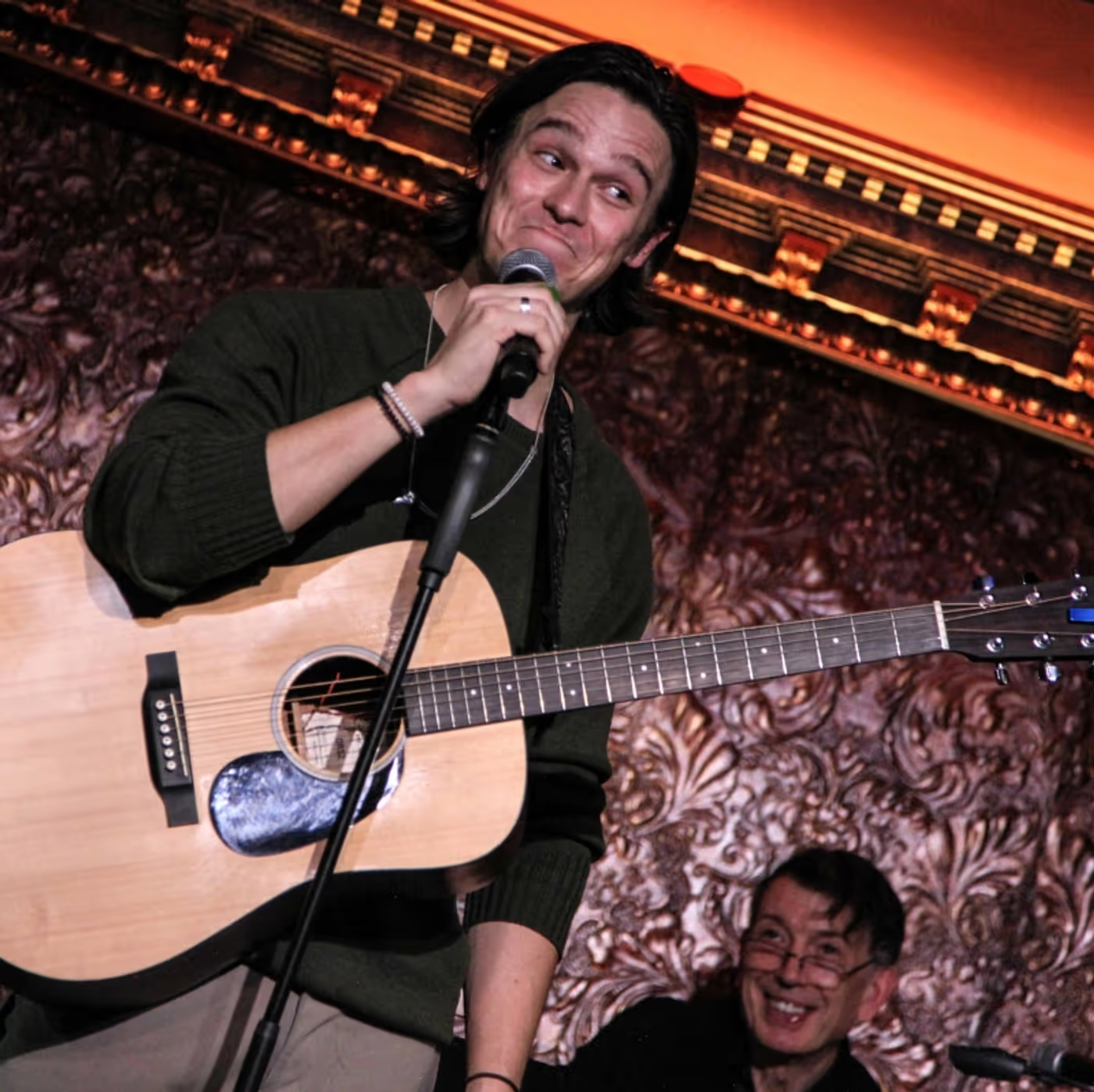
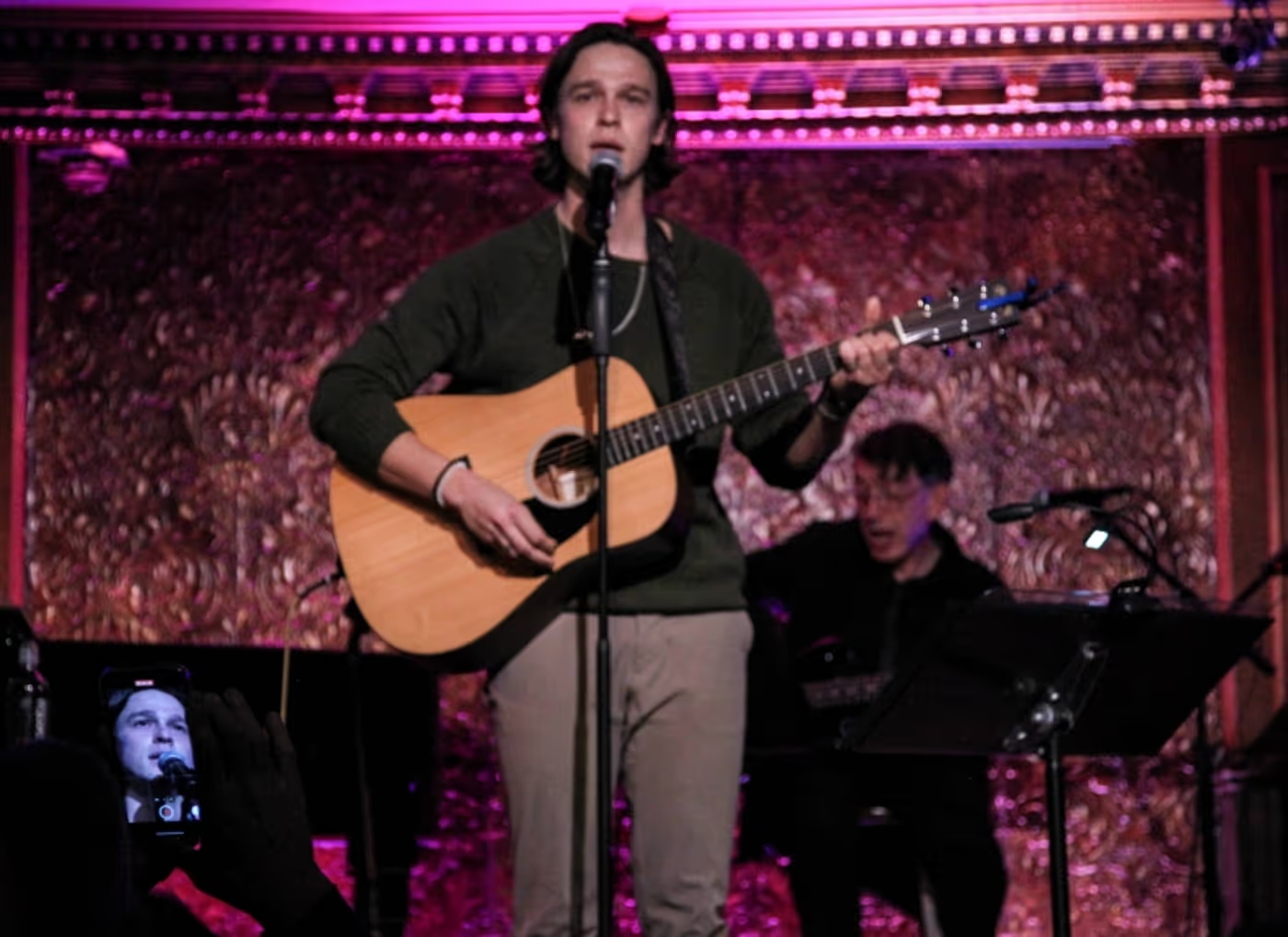
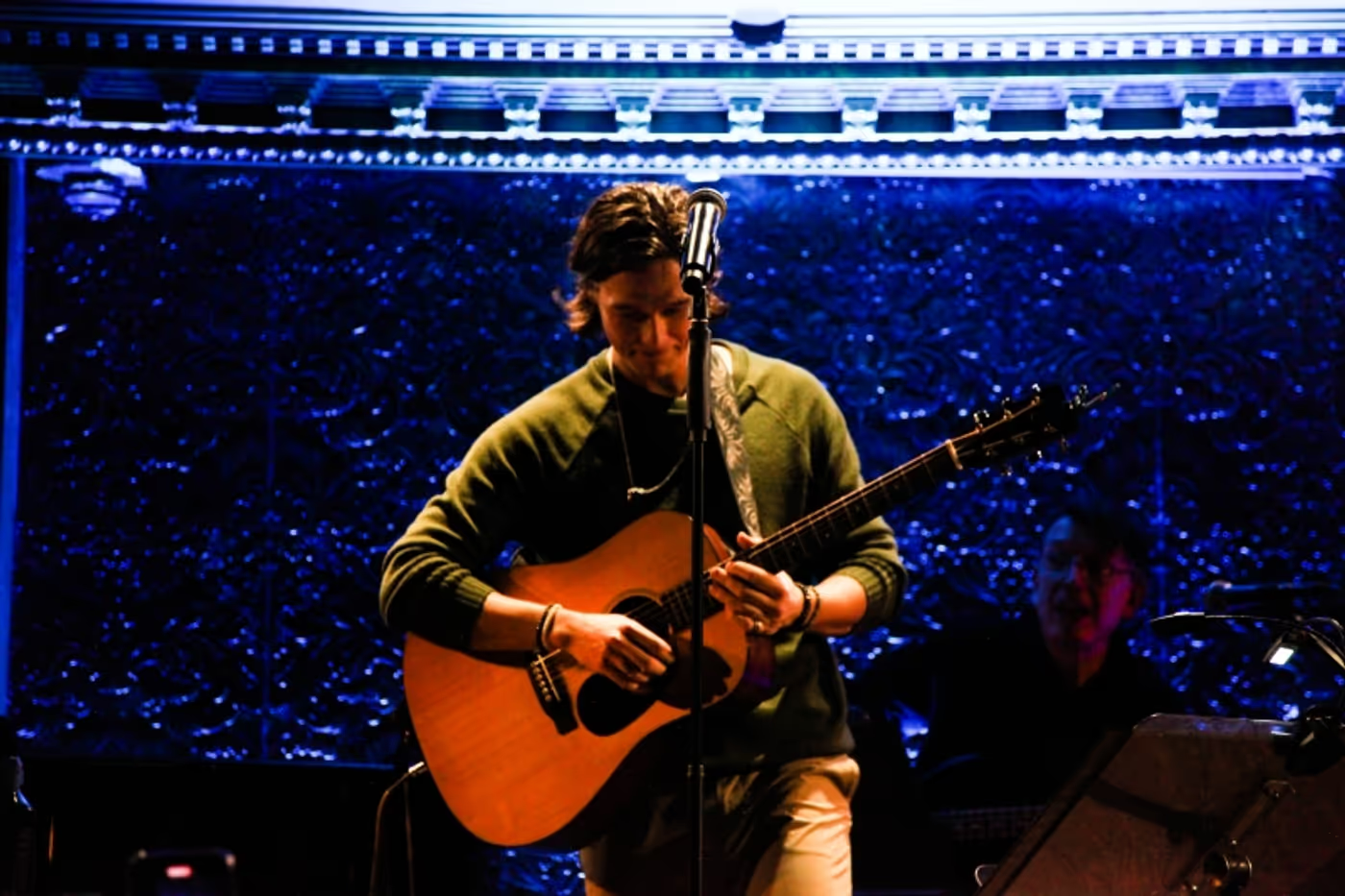
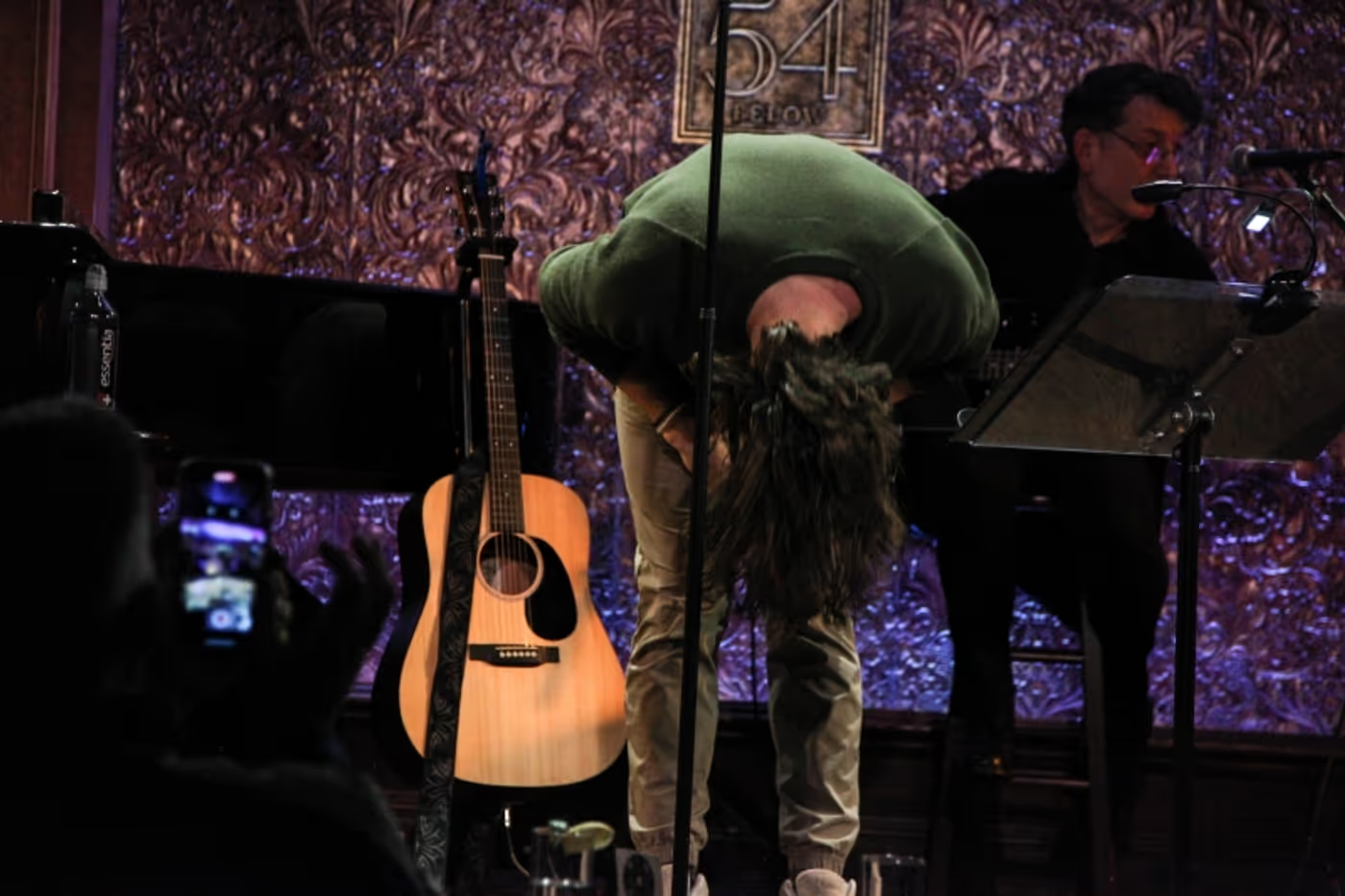
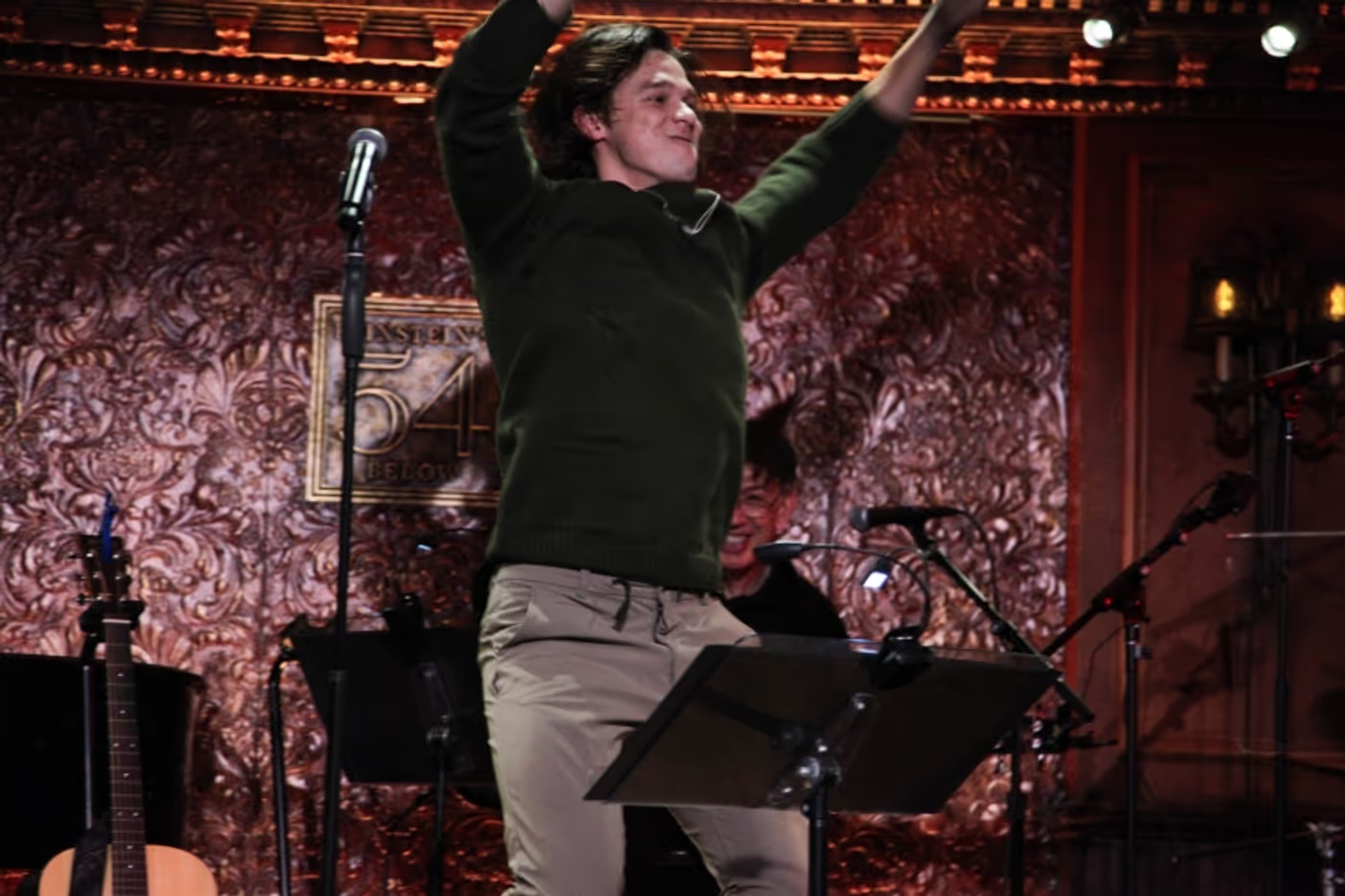
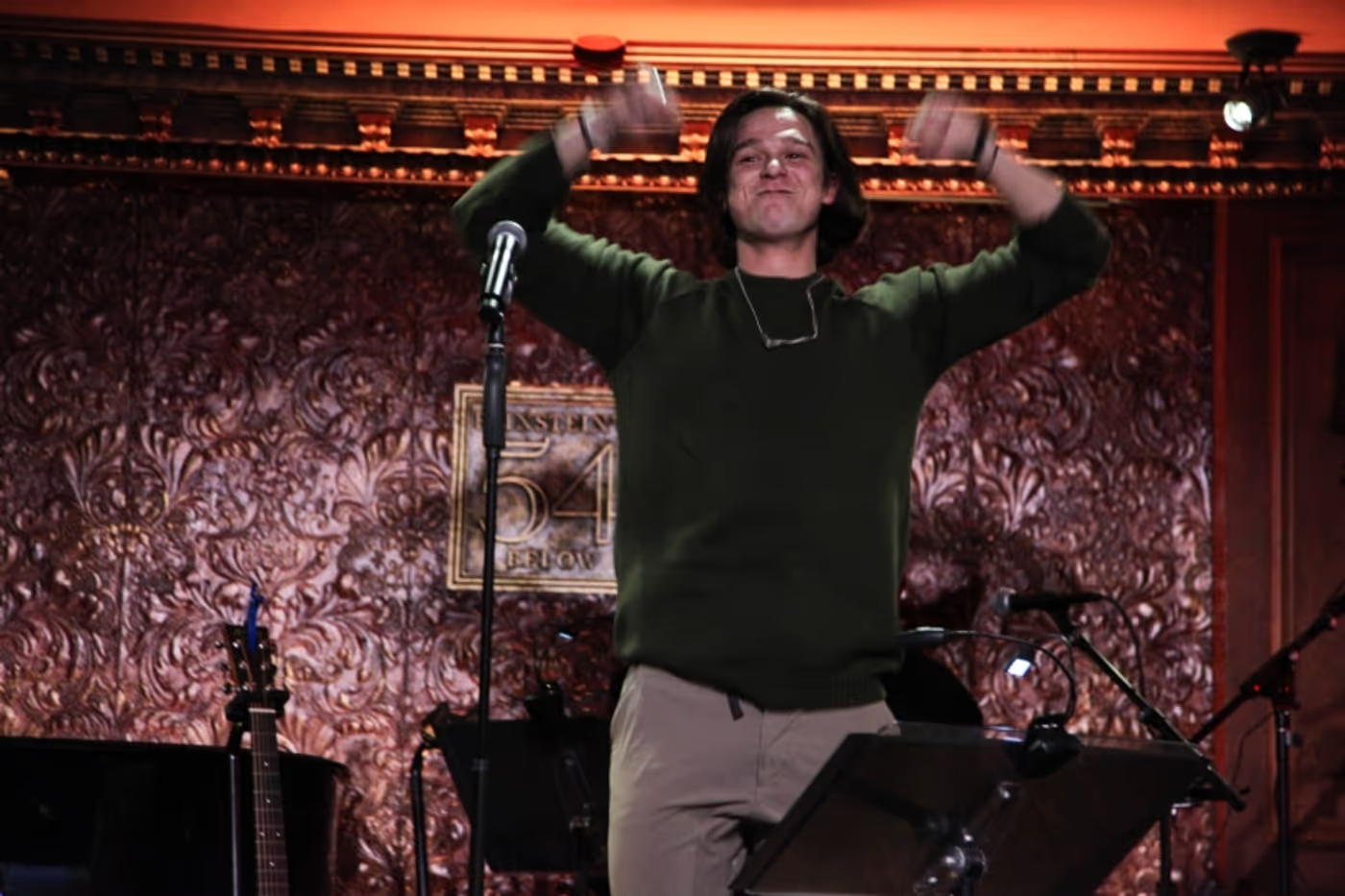
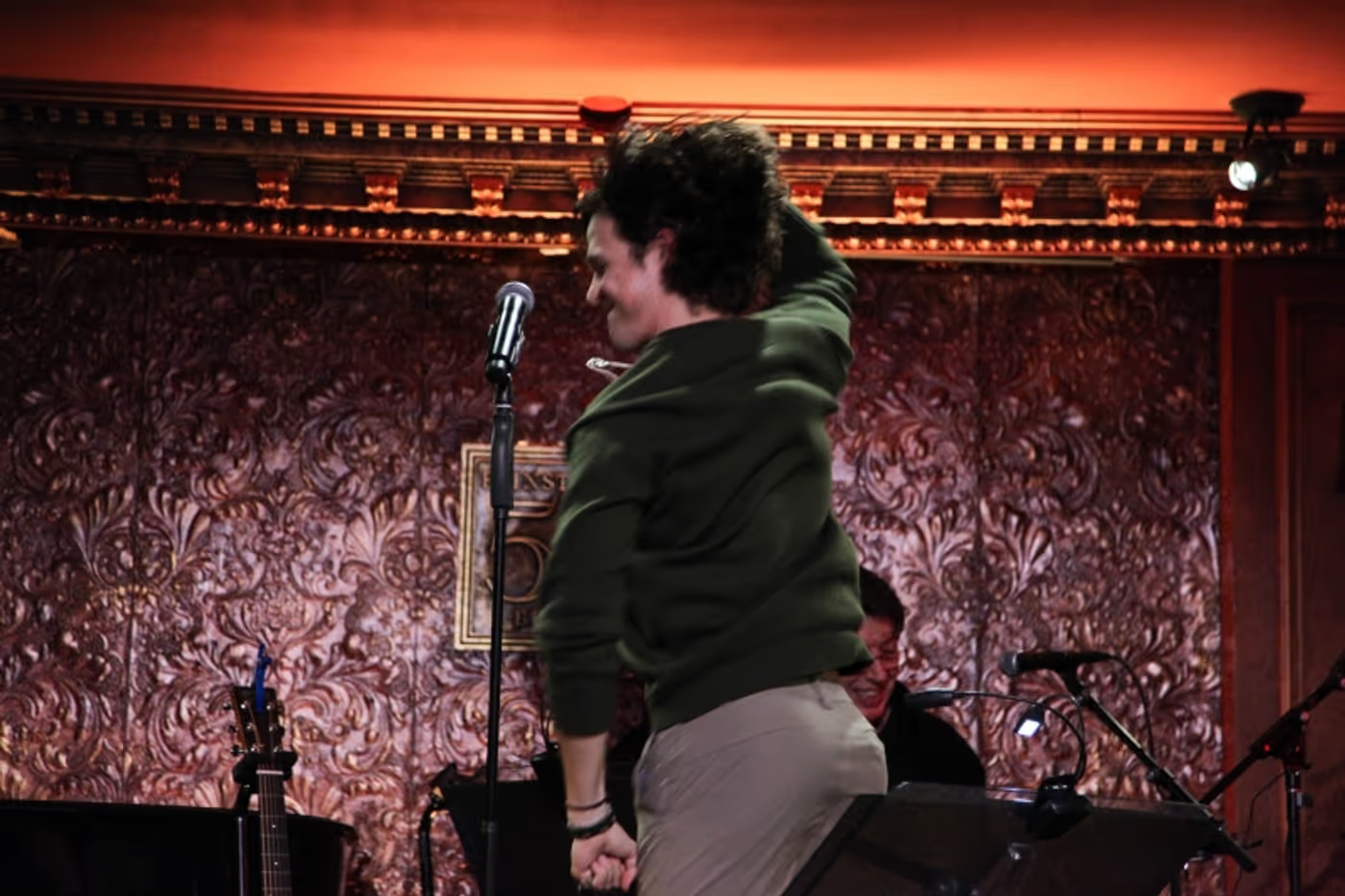
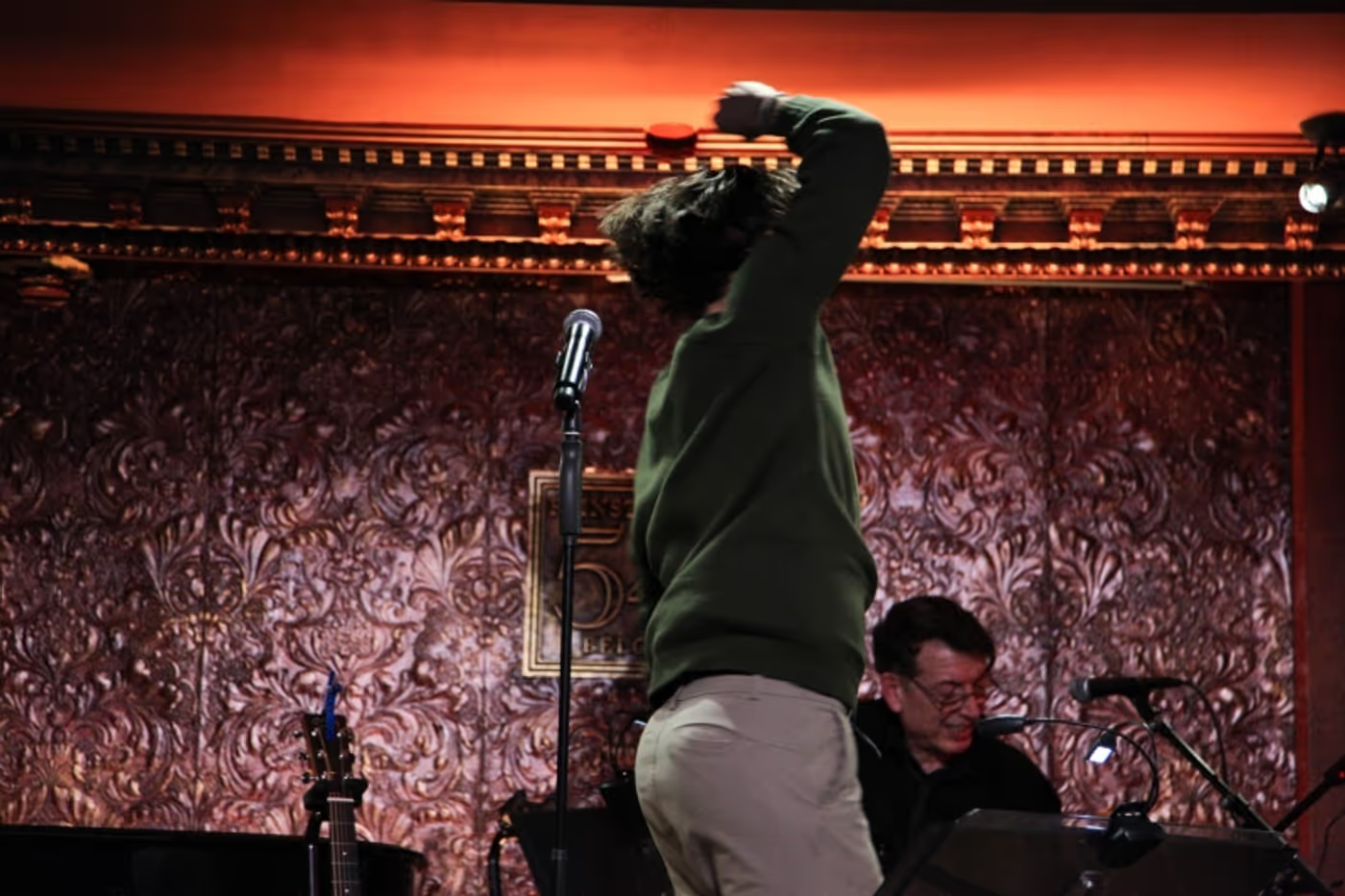
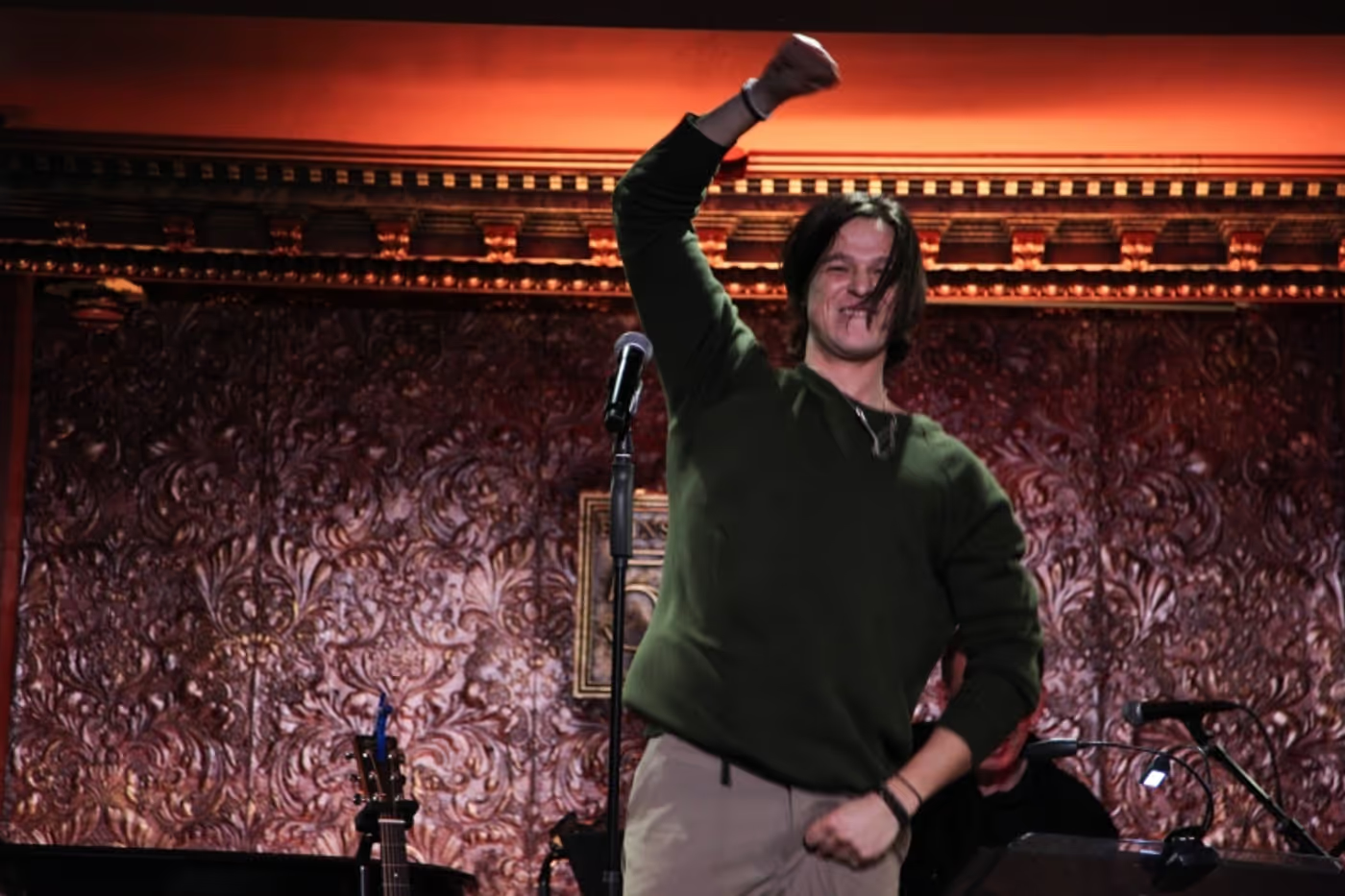
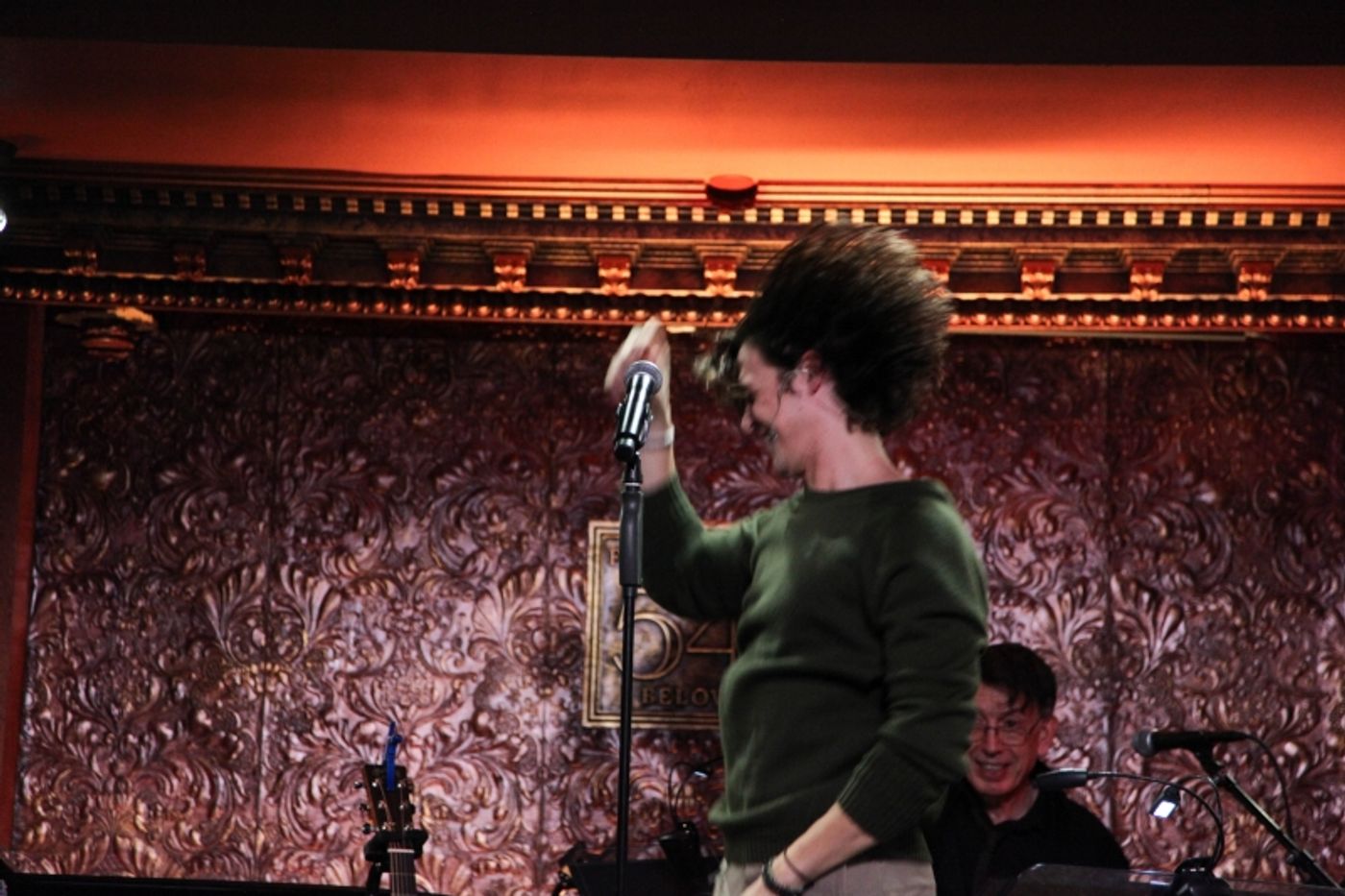
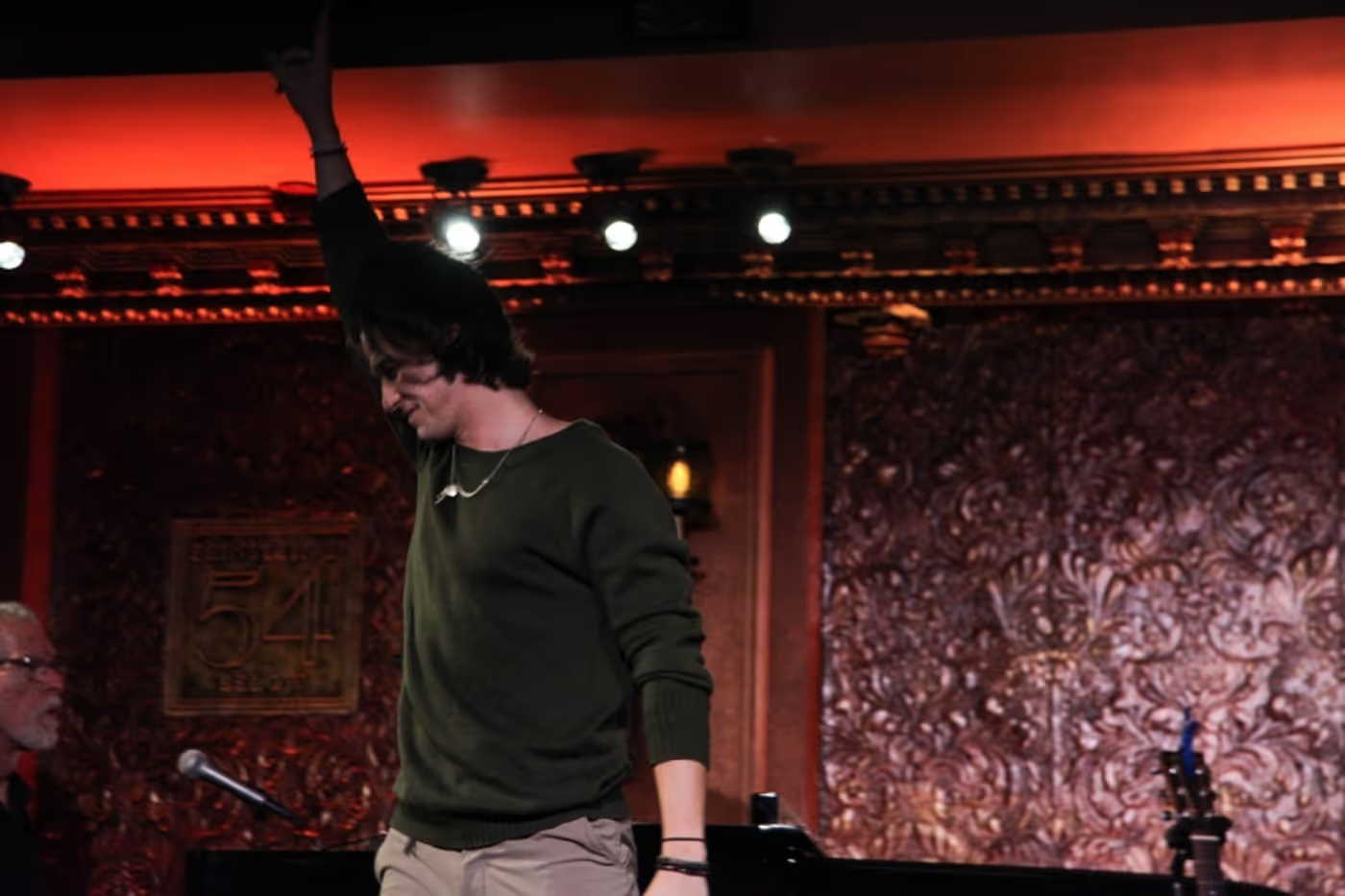
Photos by Stephen Mosher
Reader Reviews
Videos

